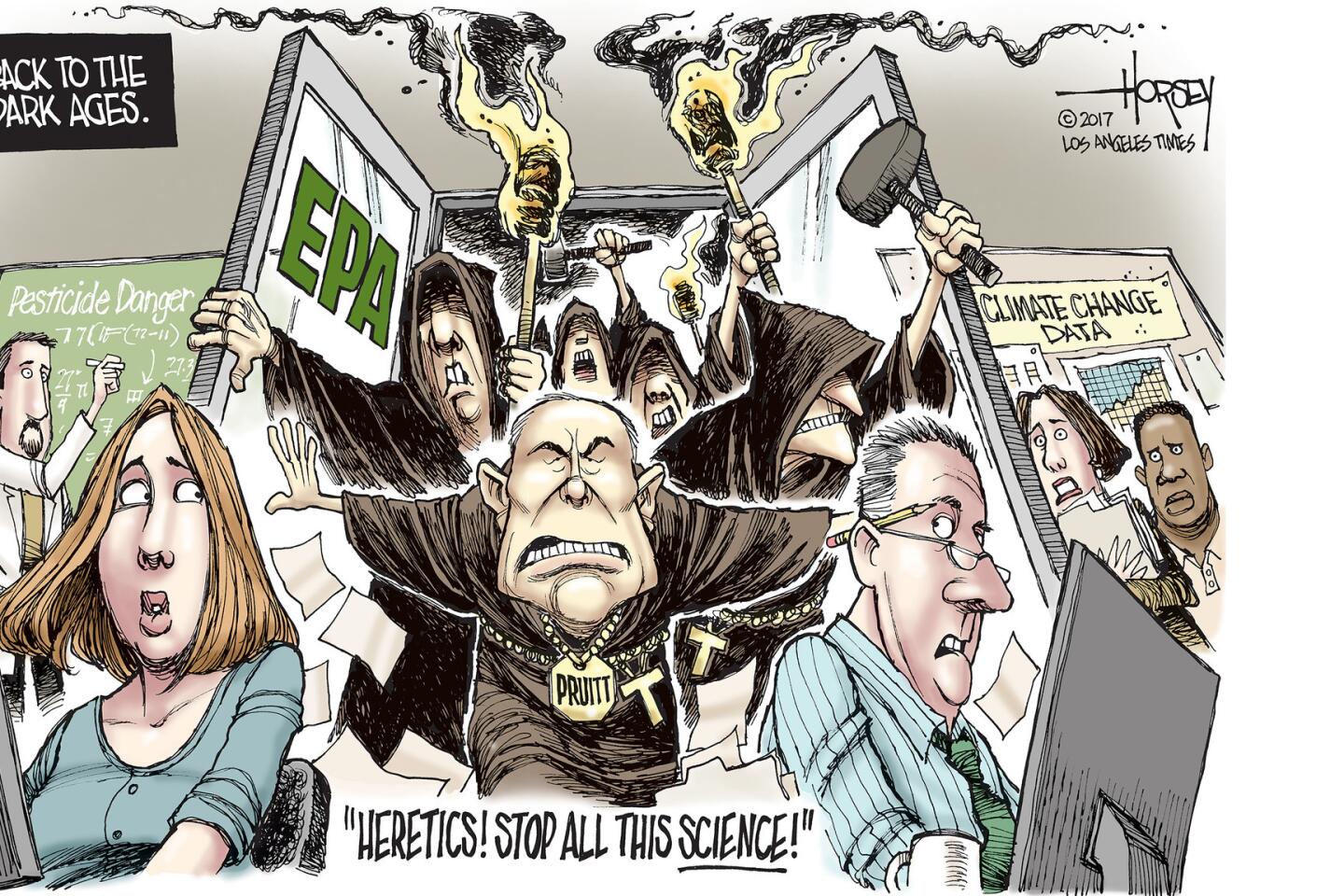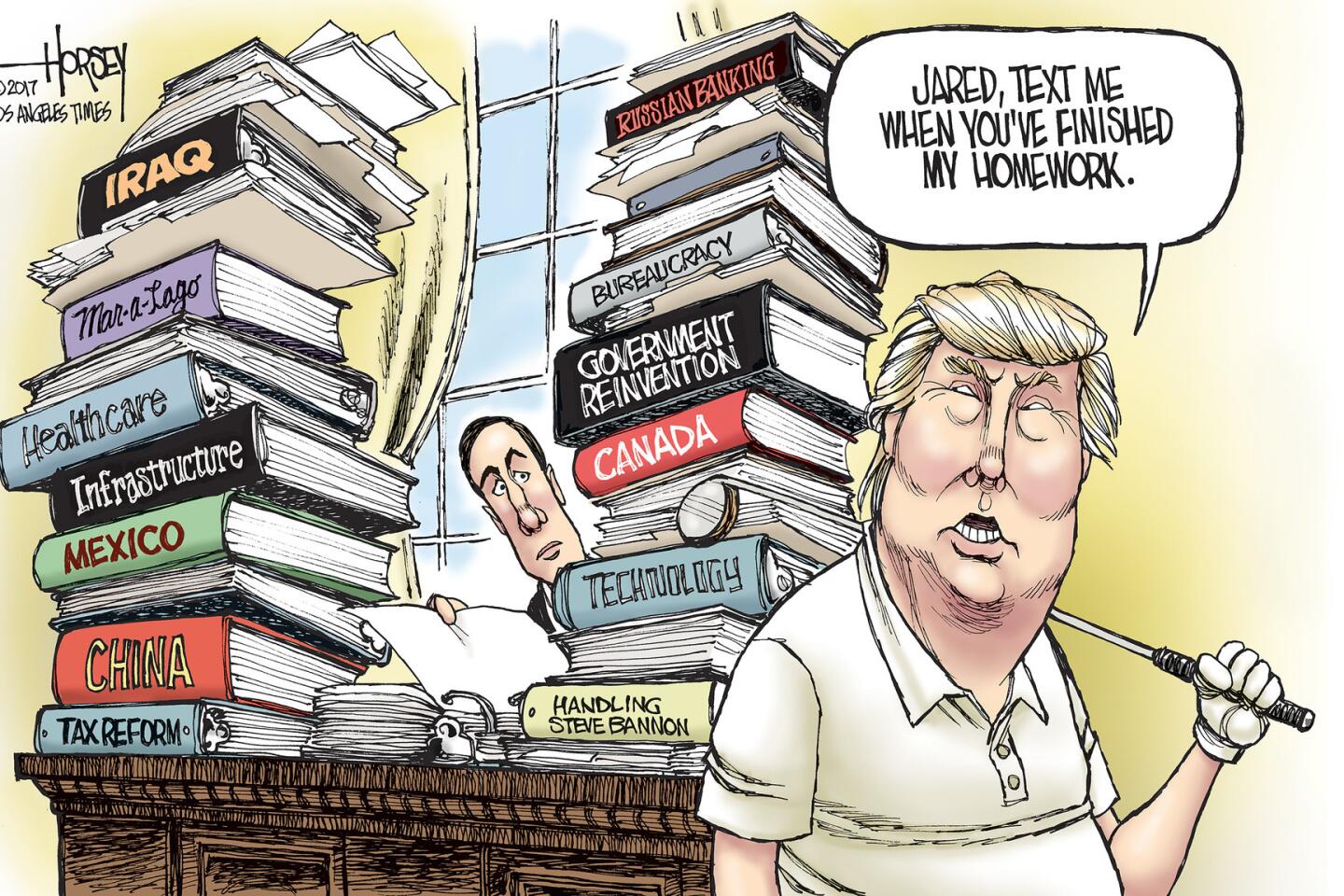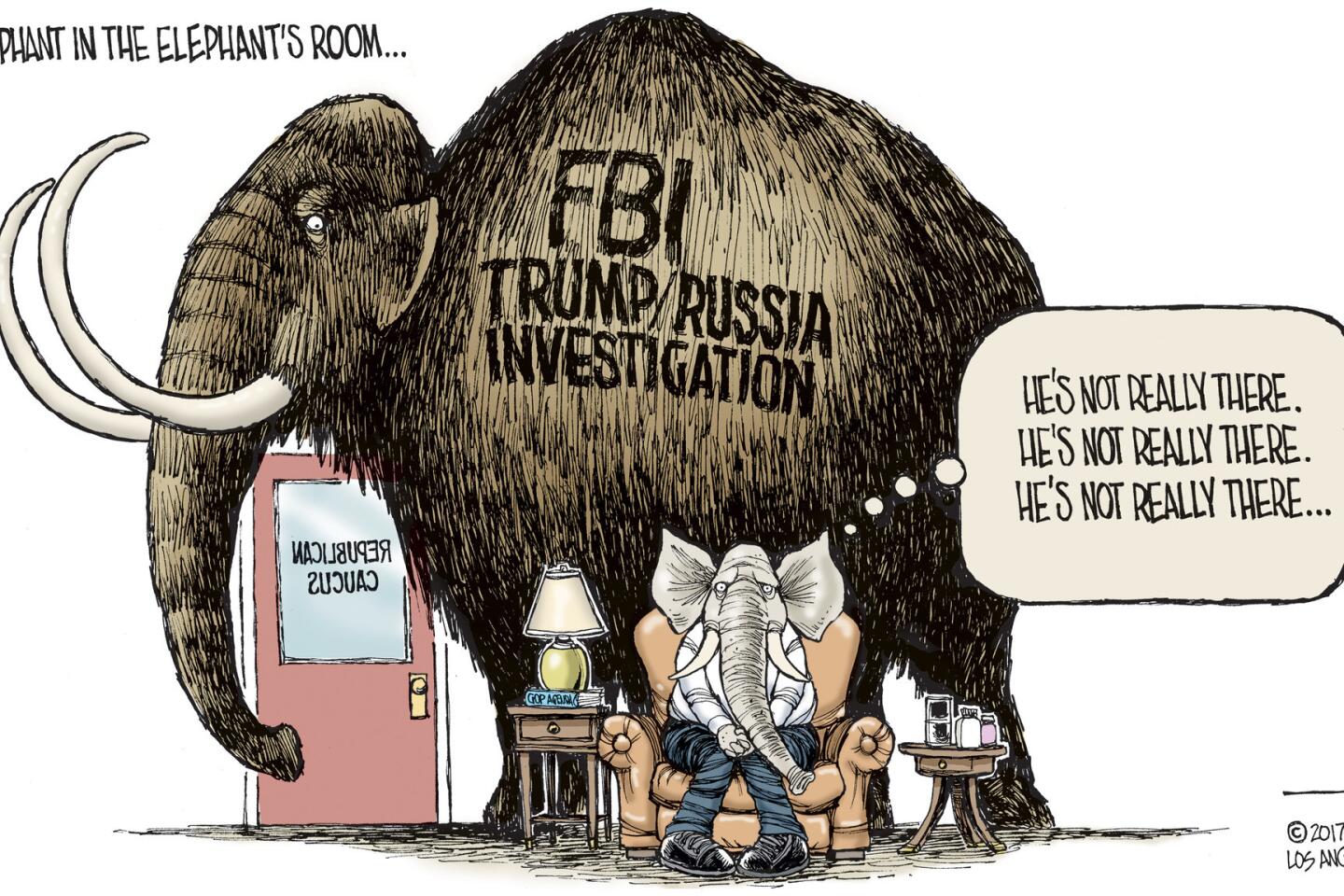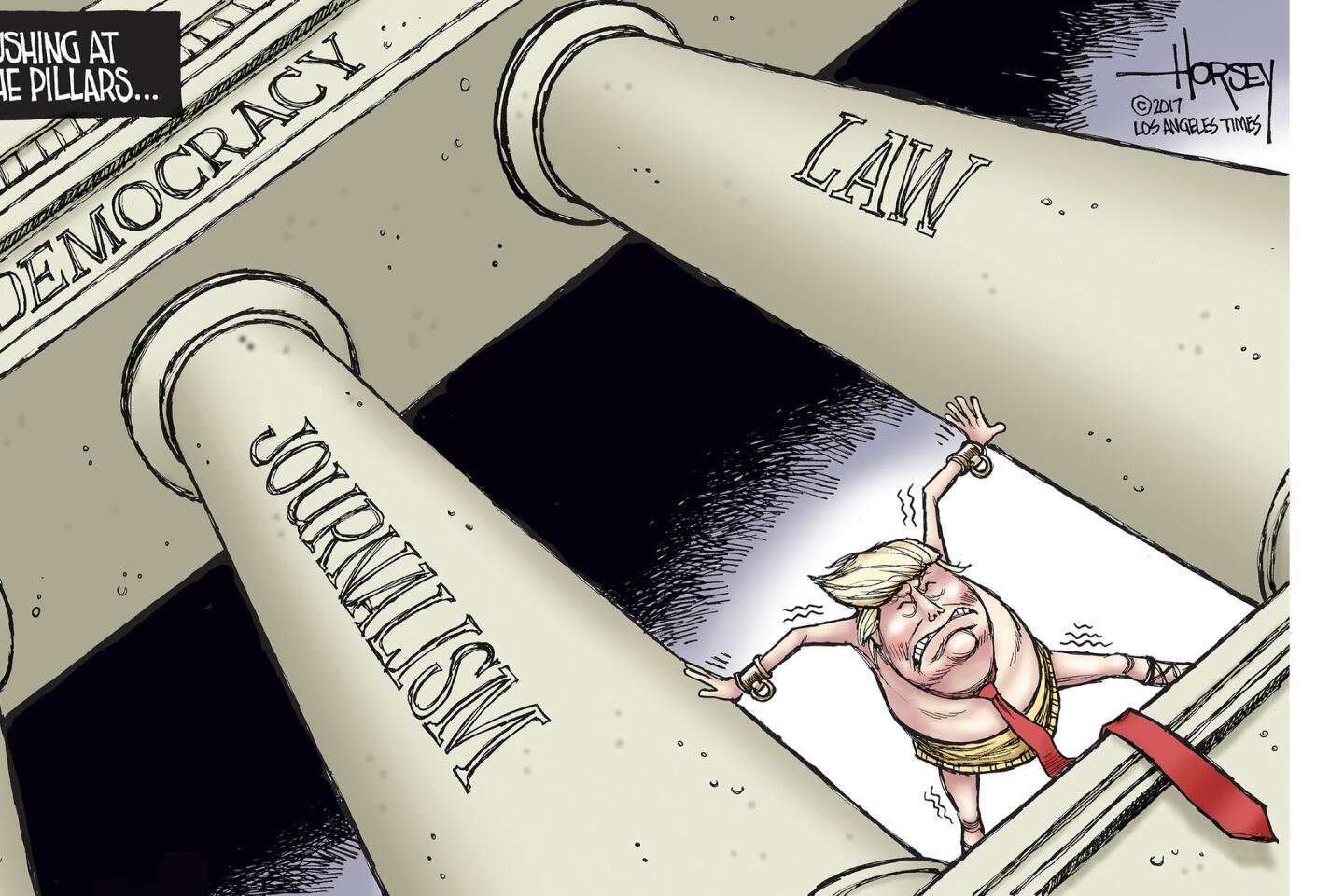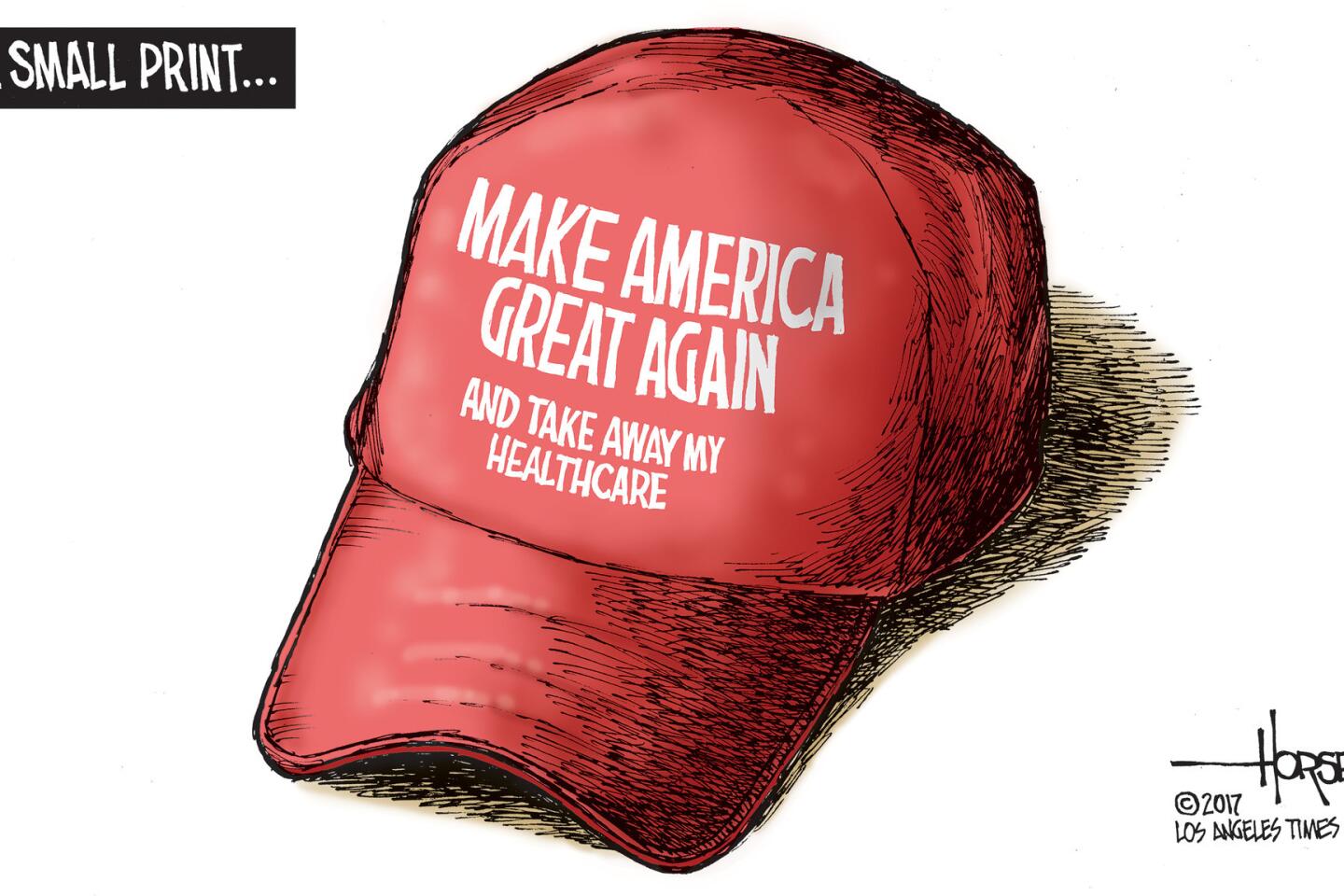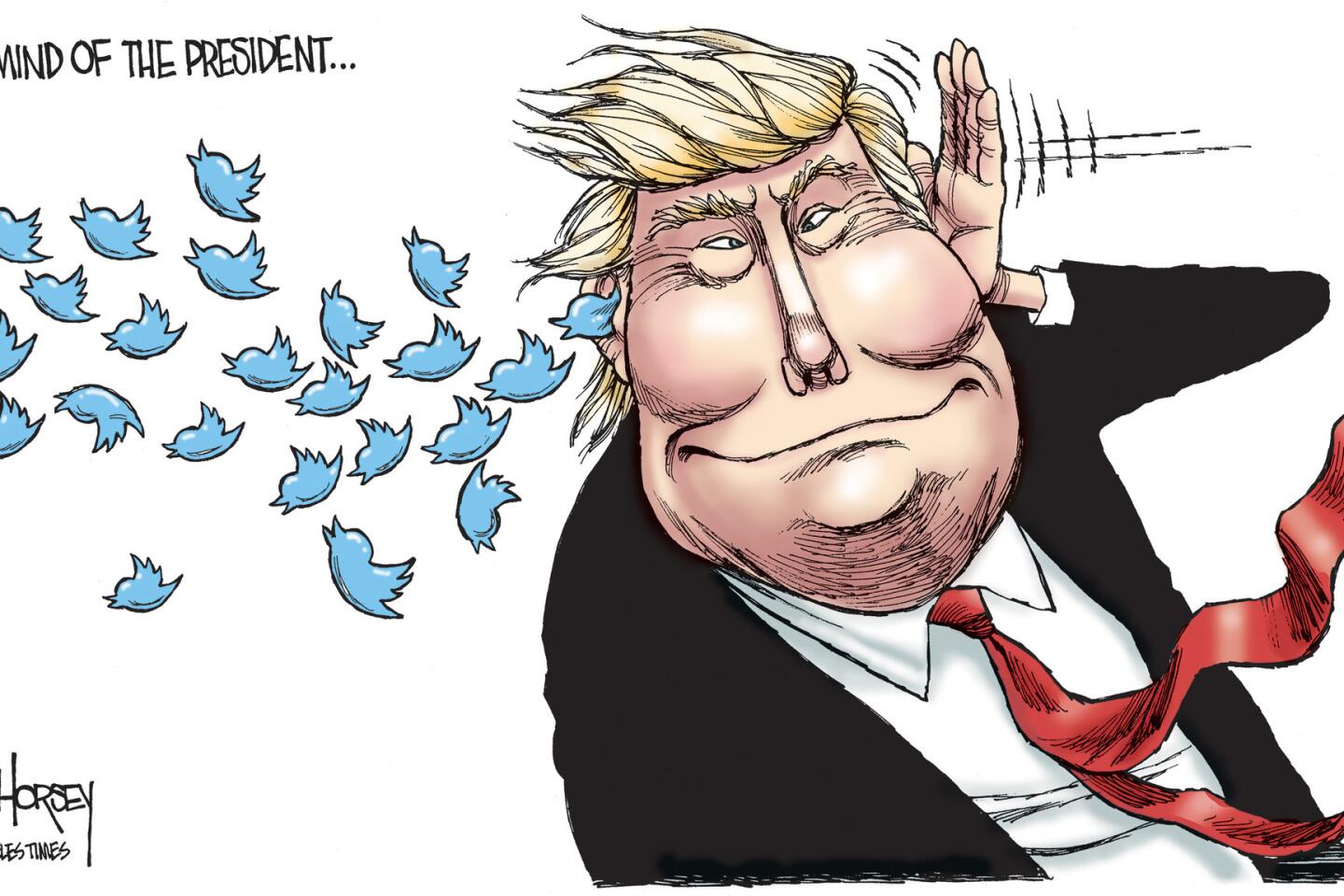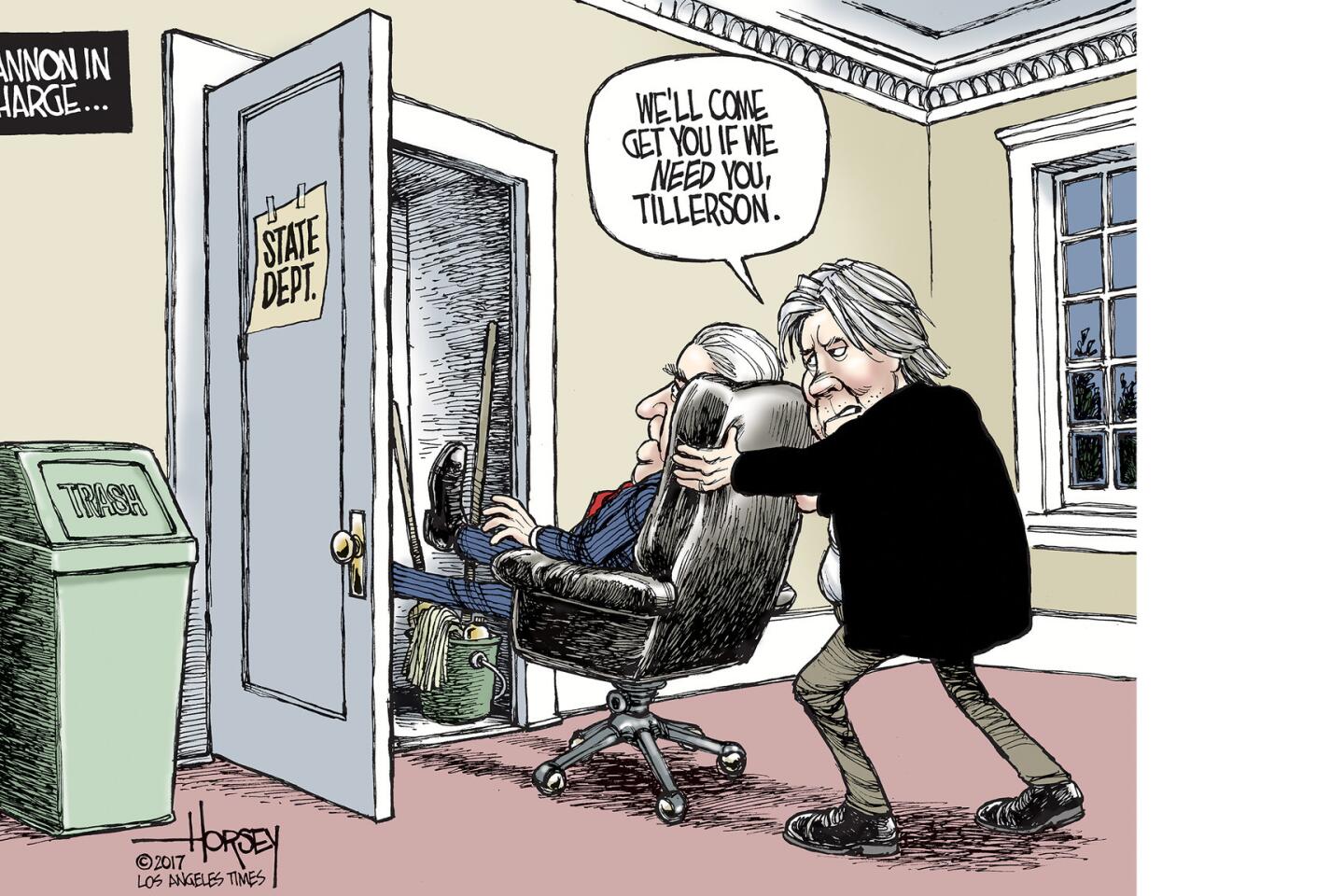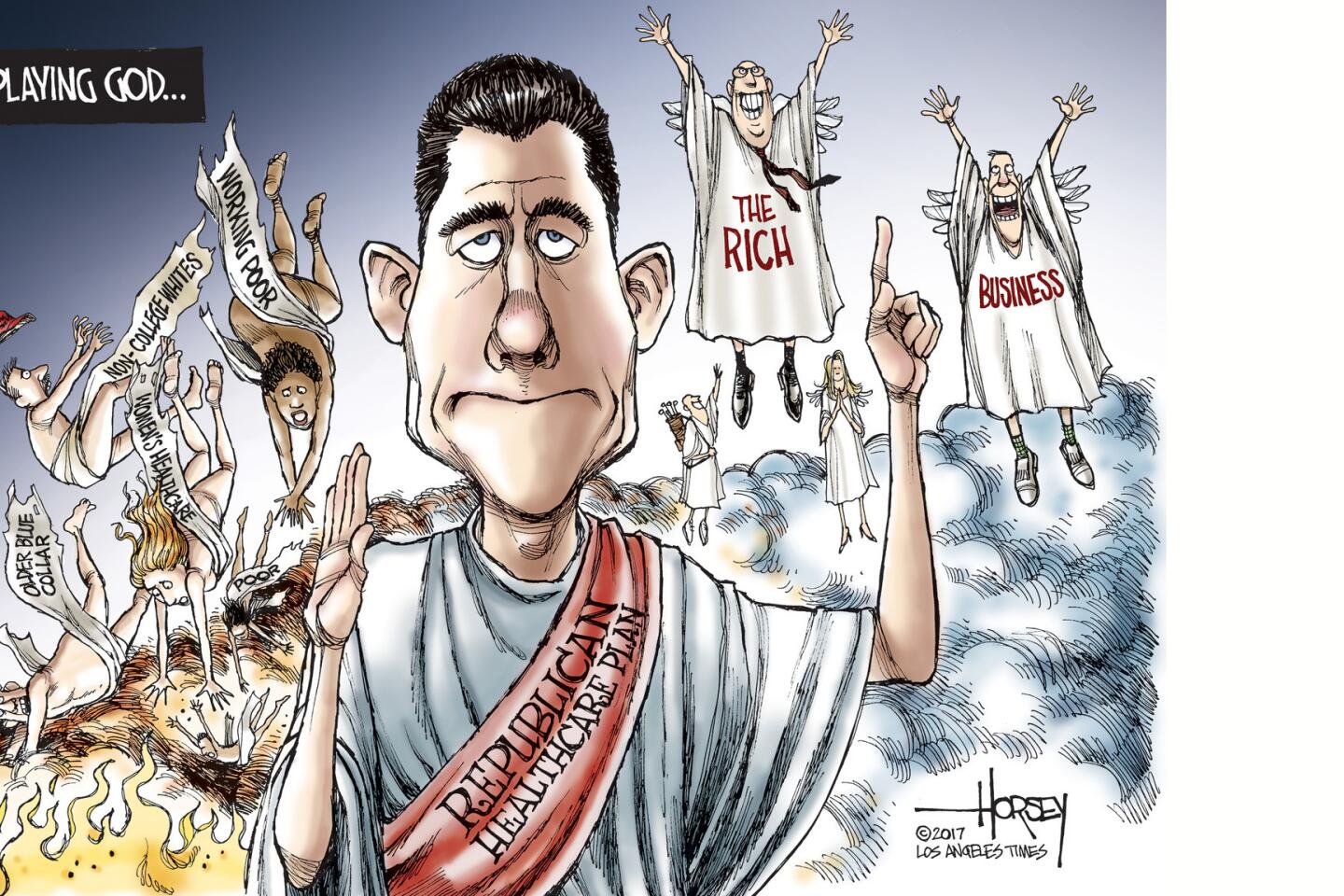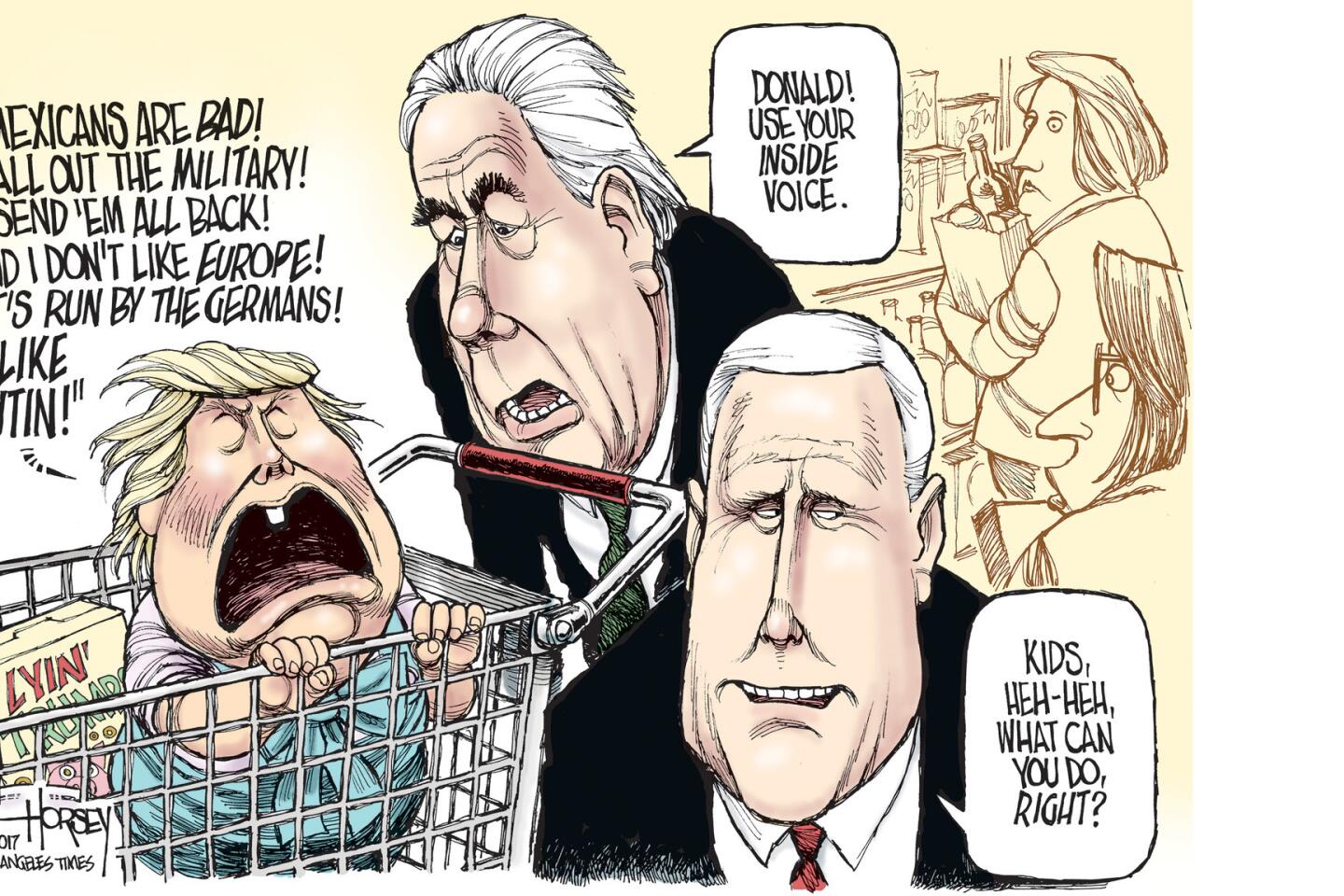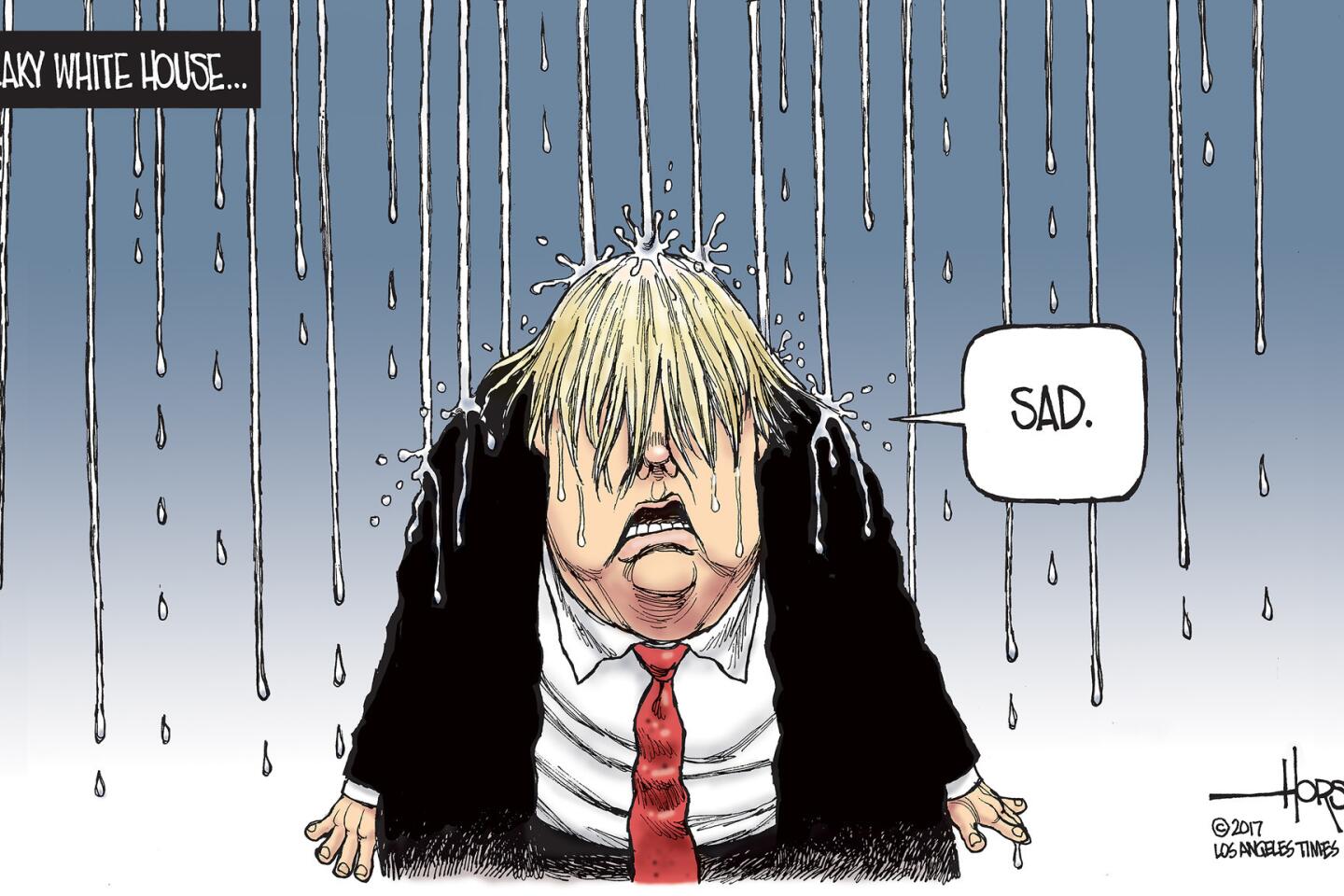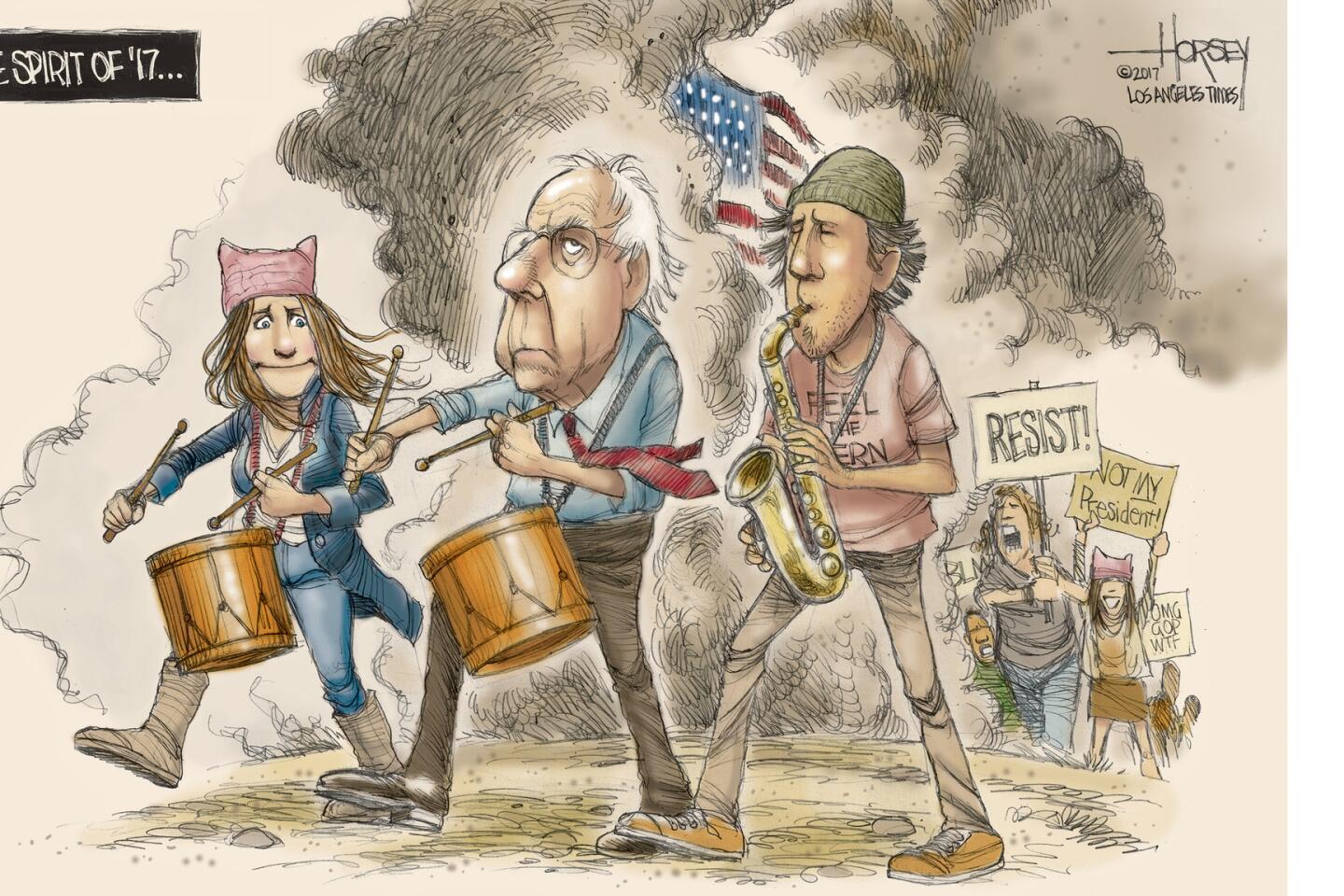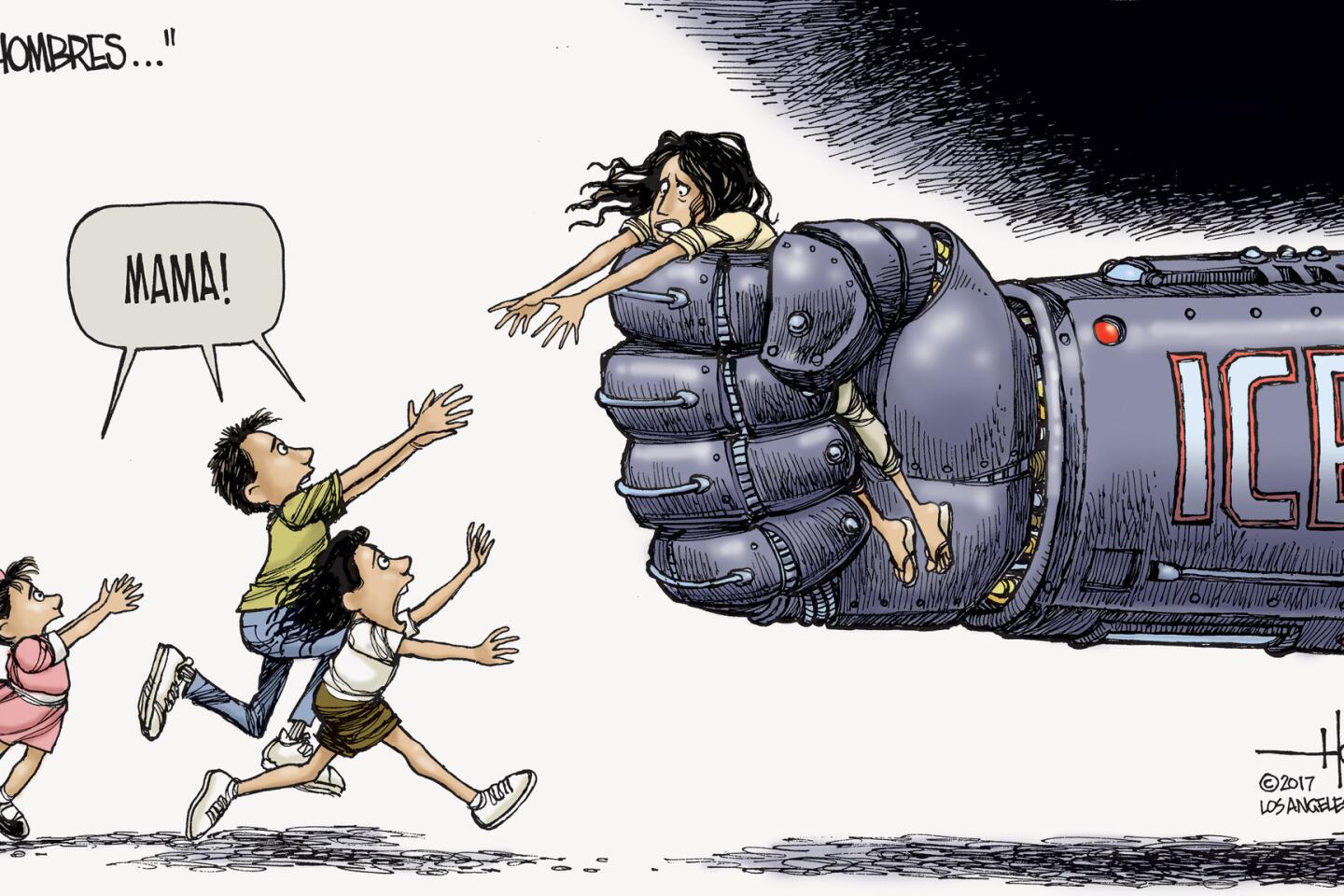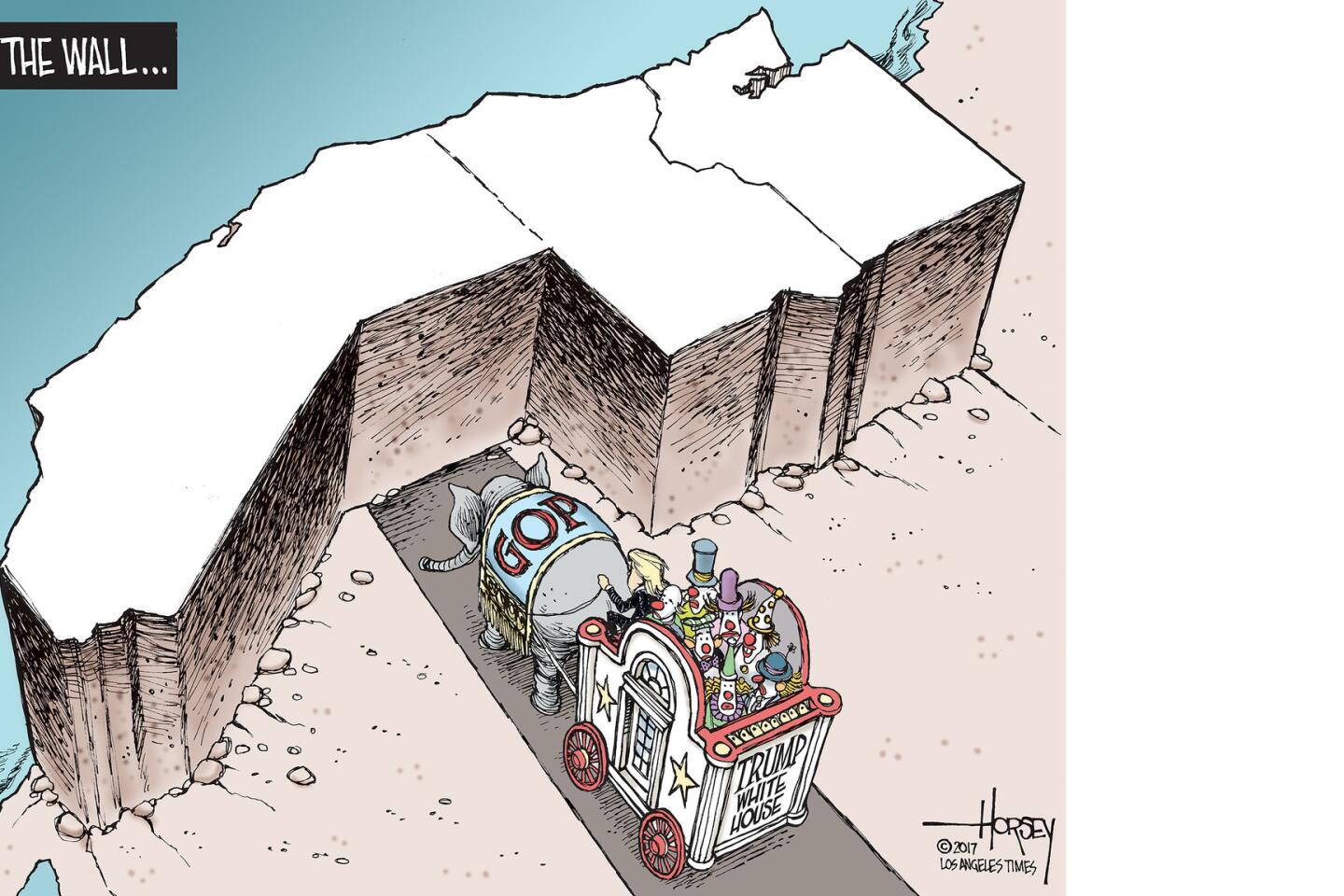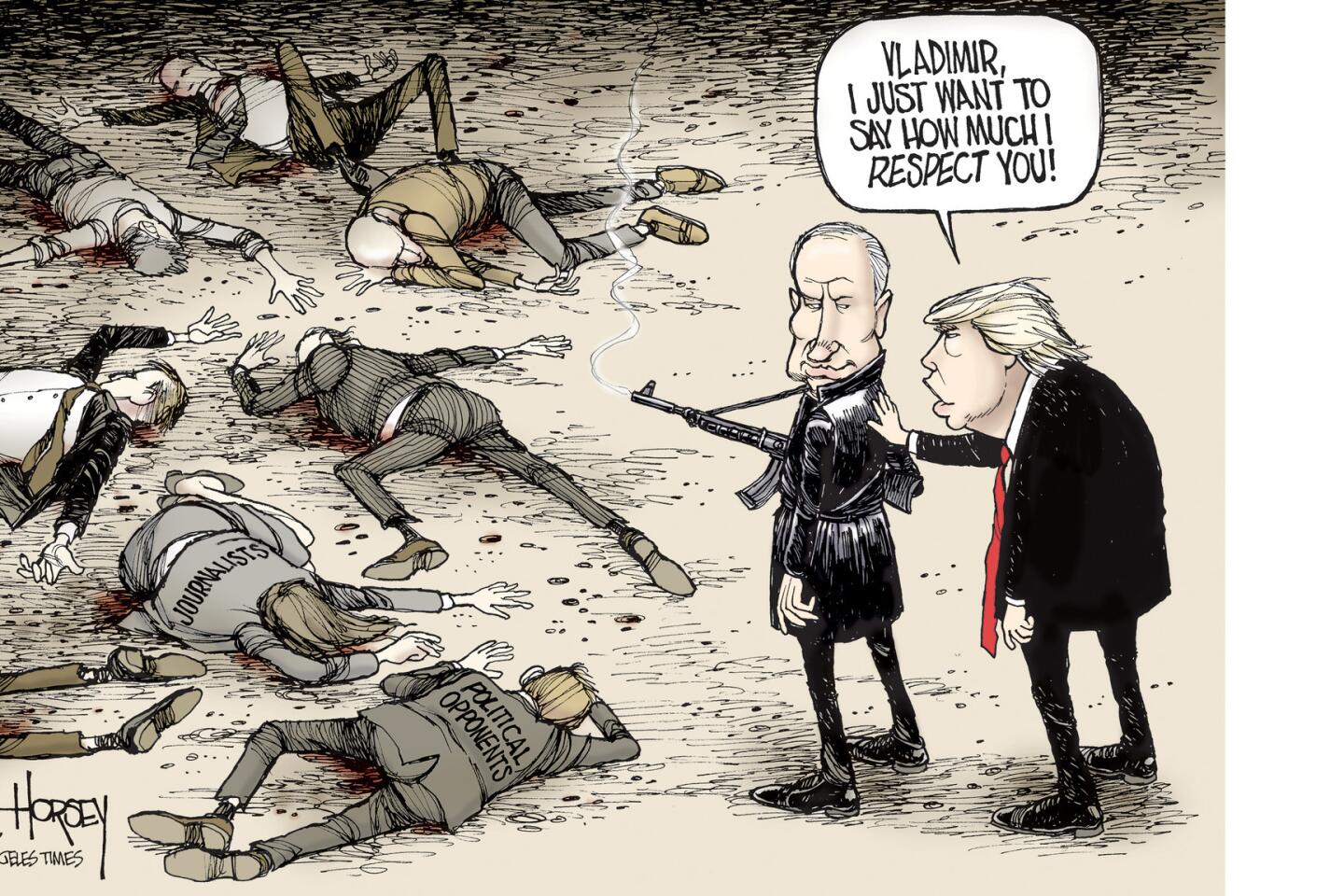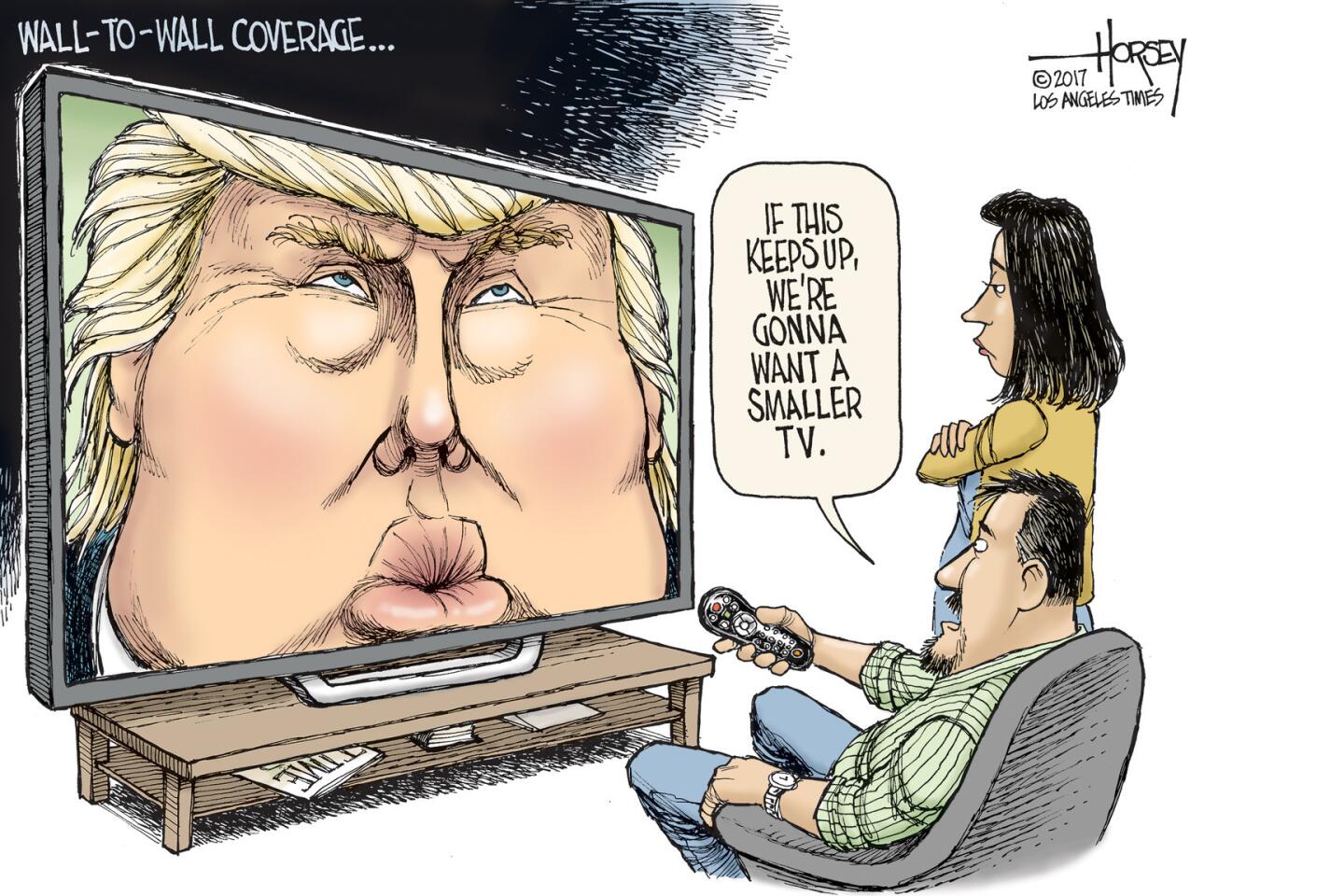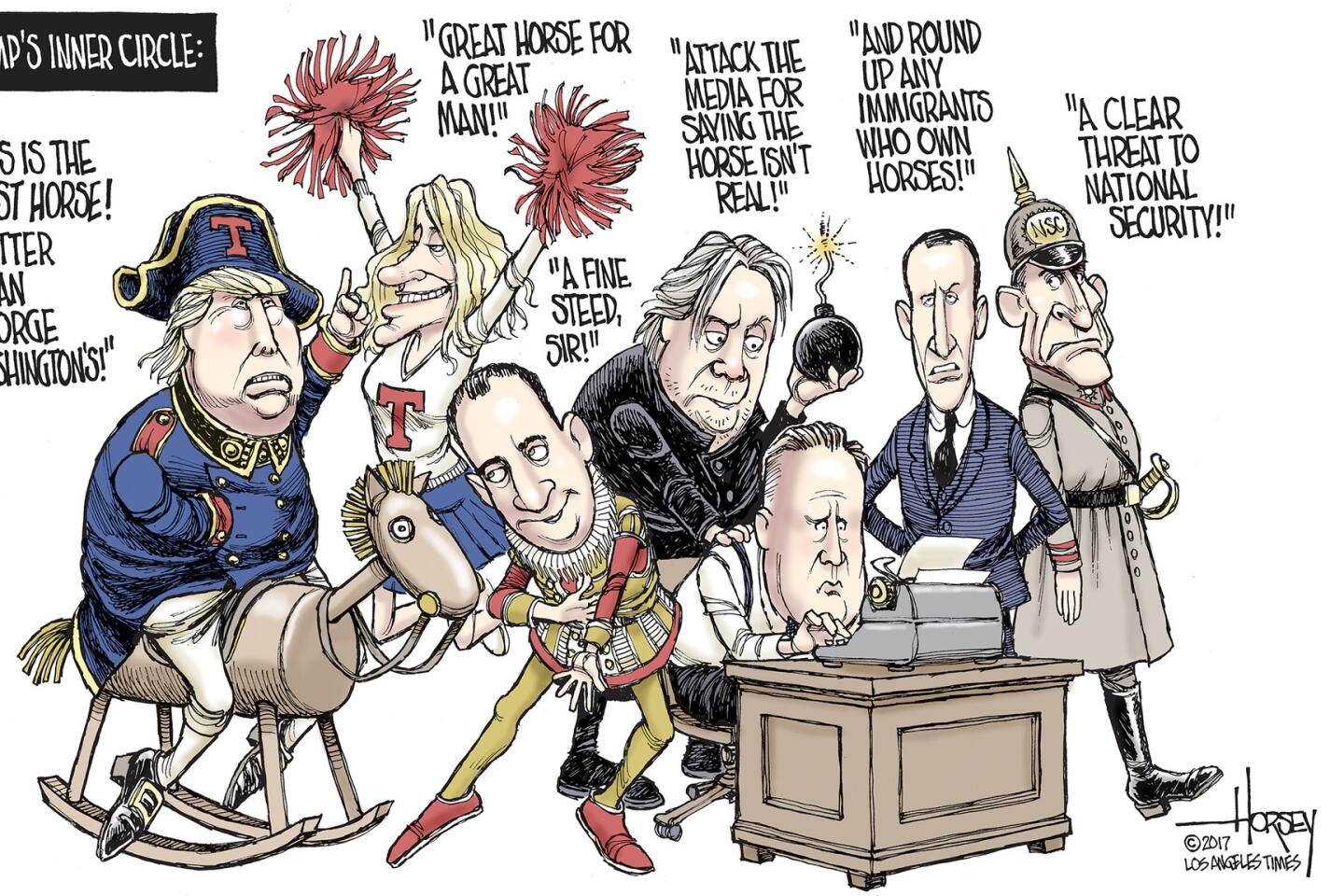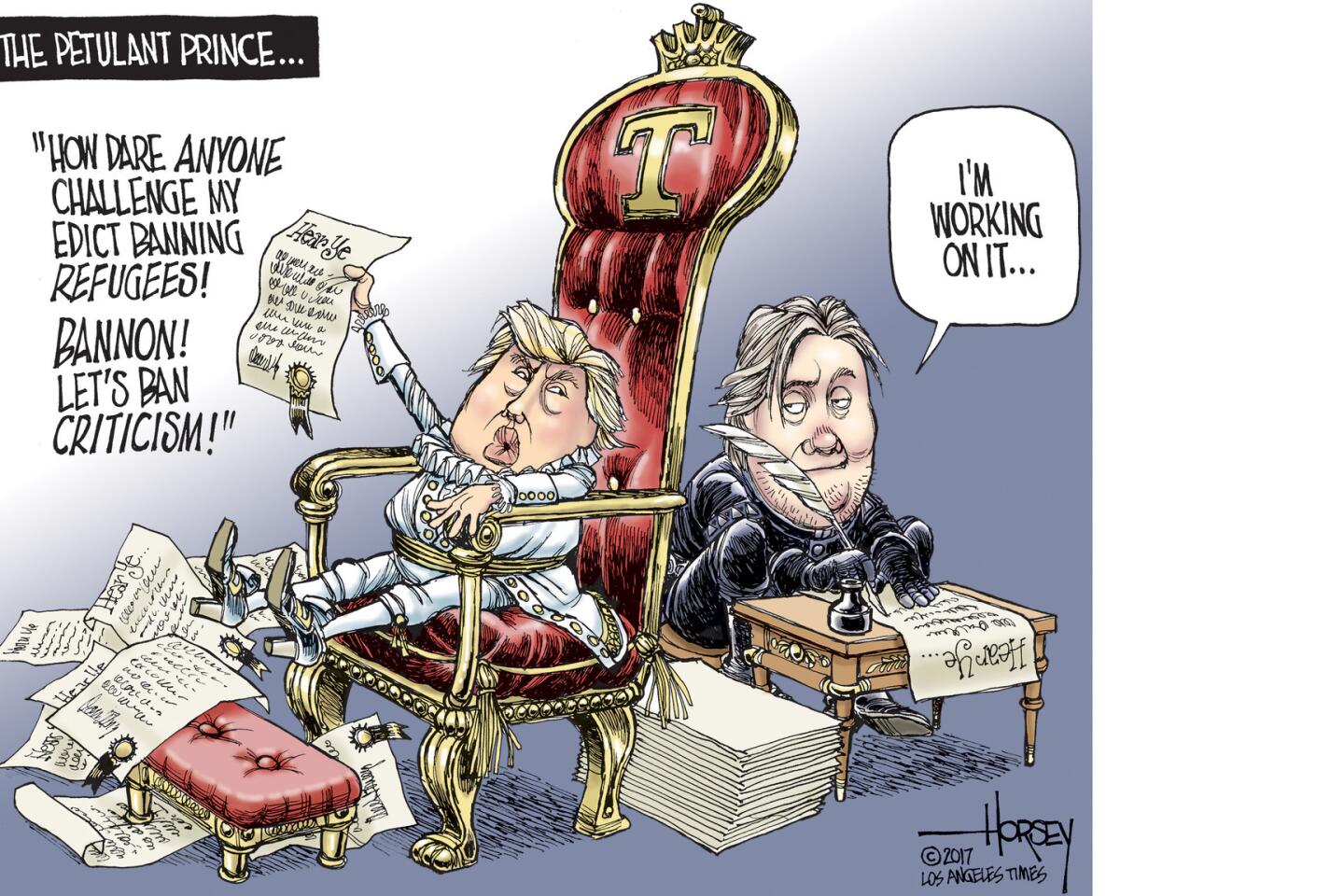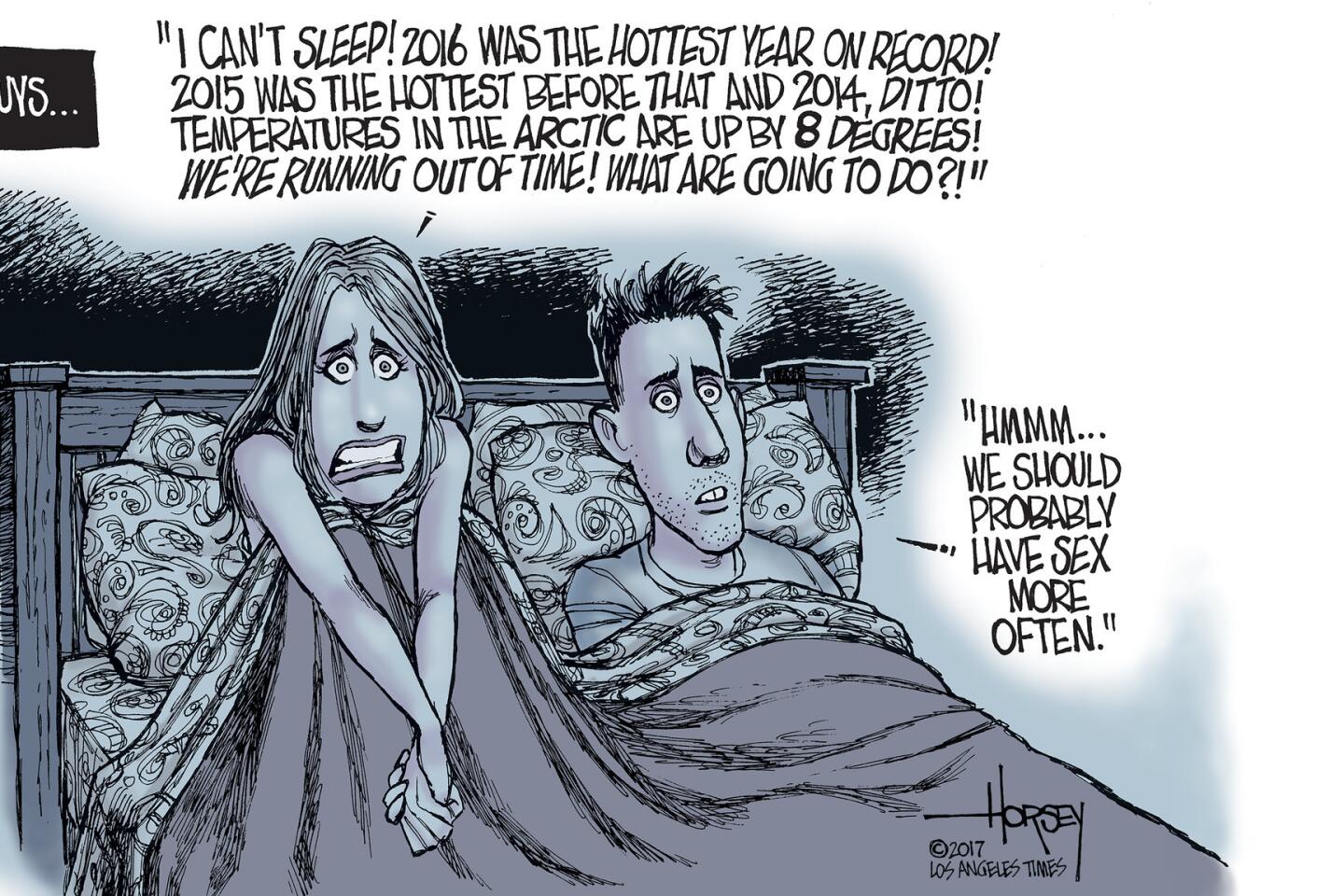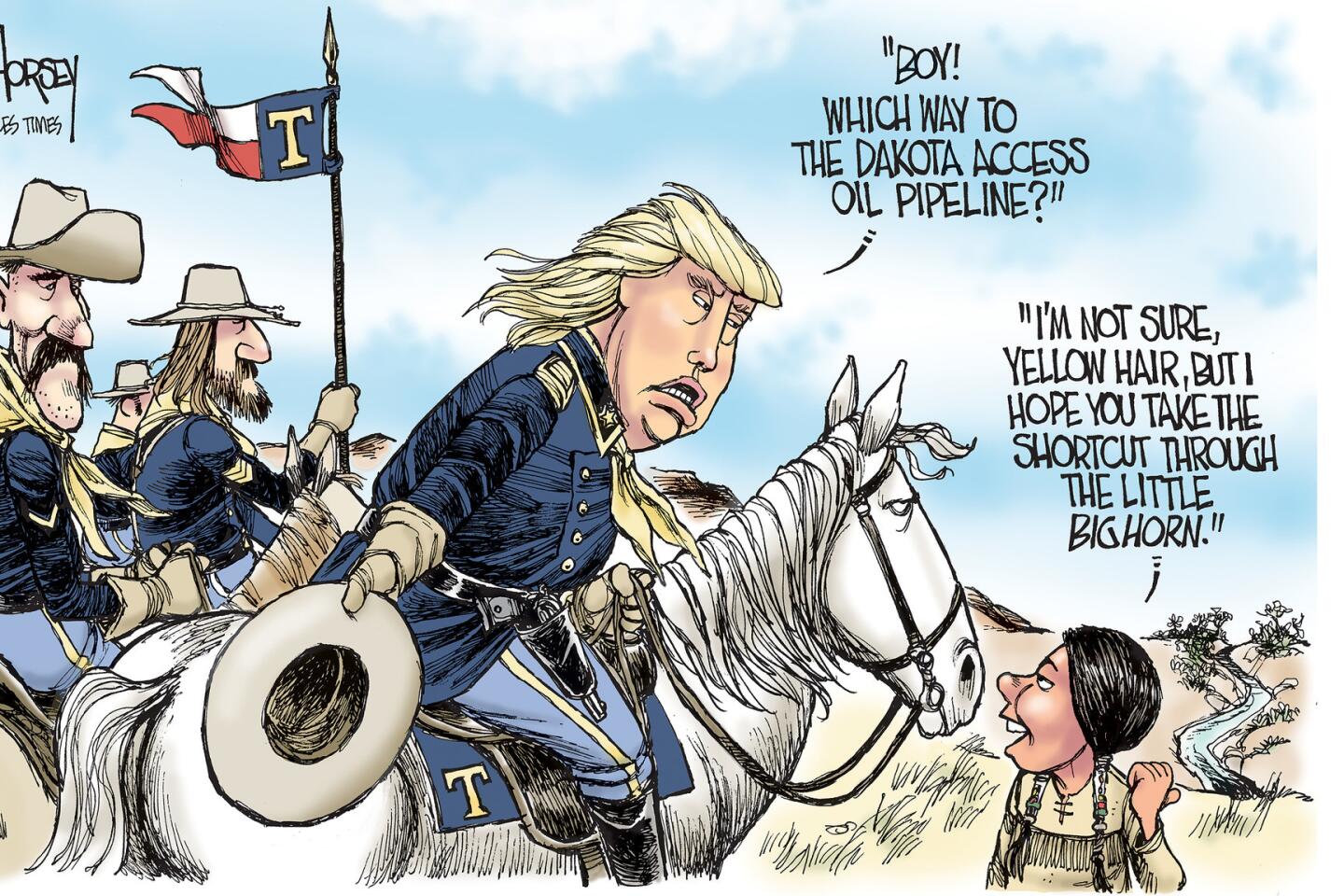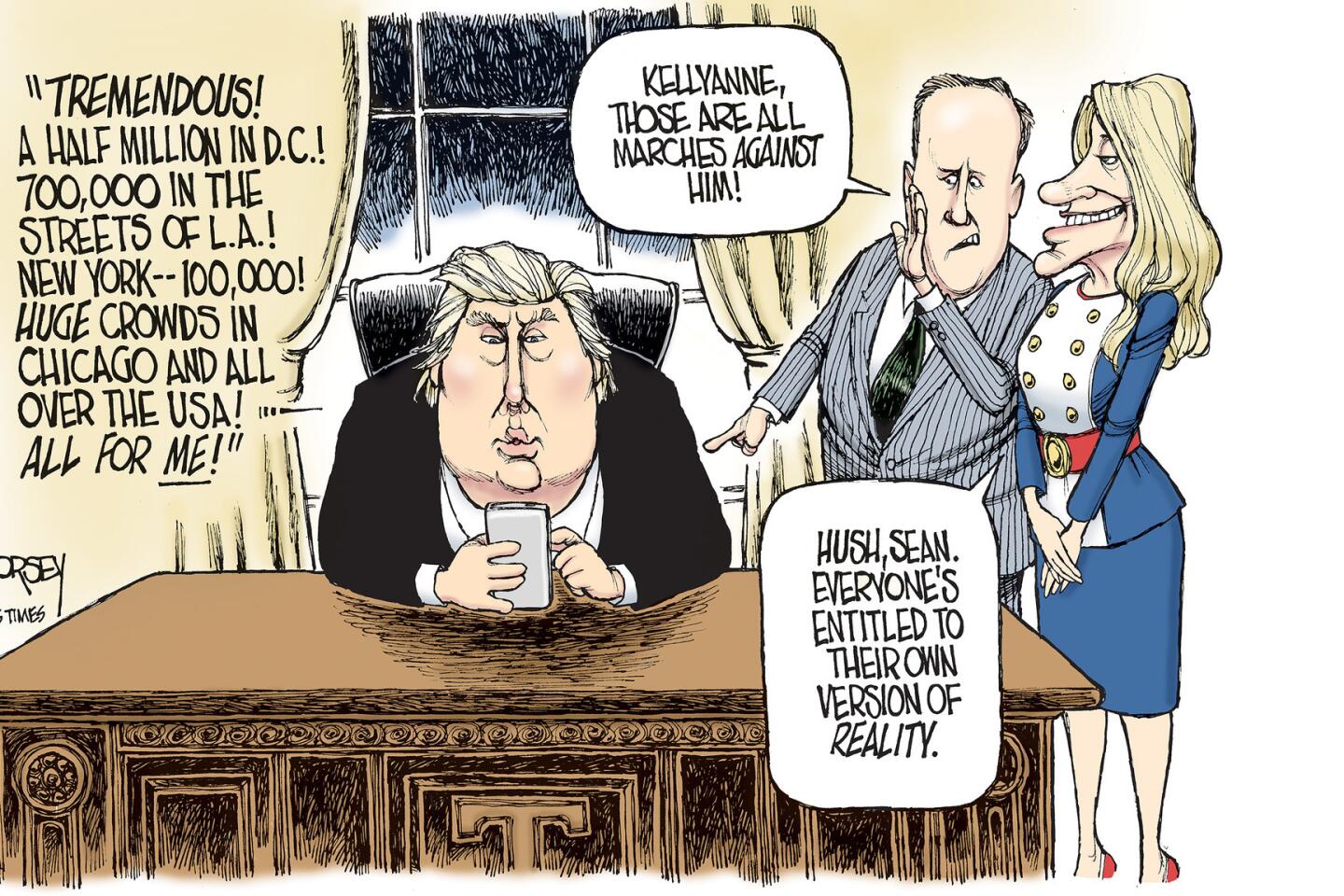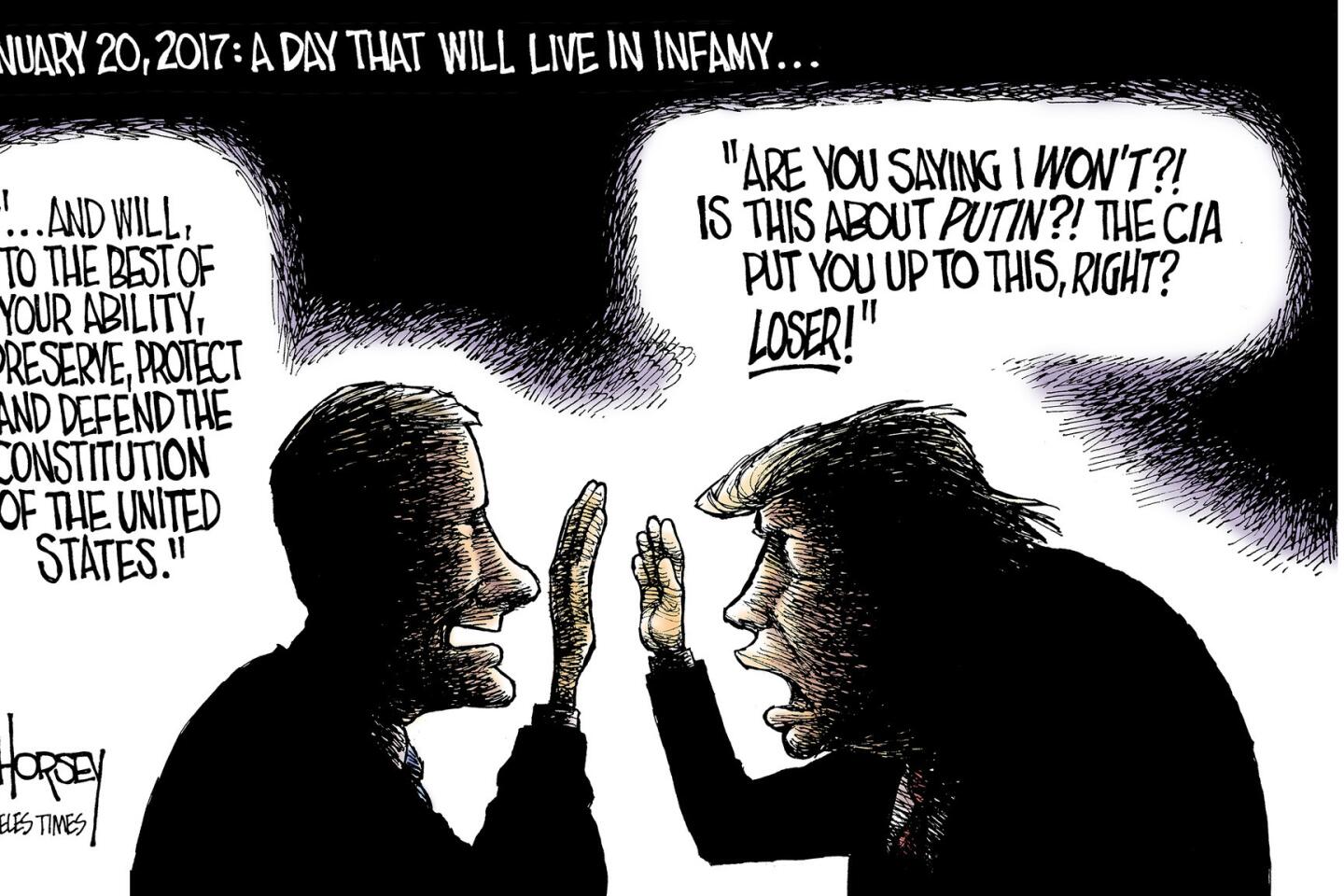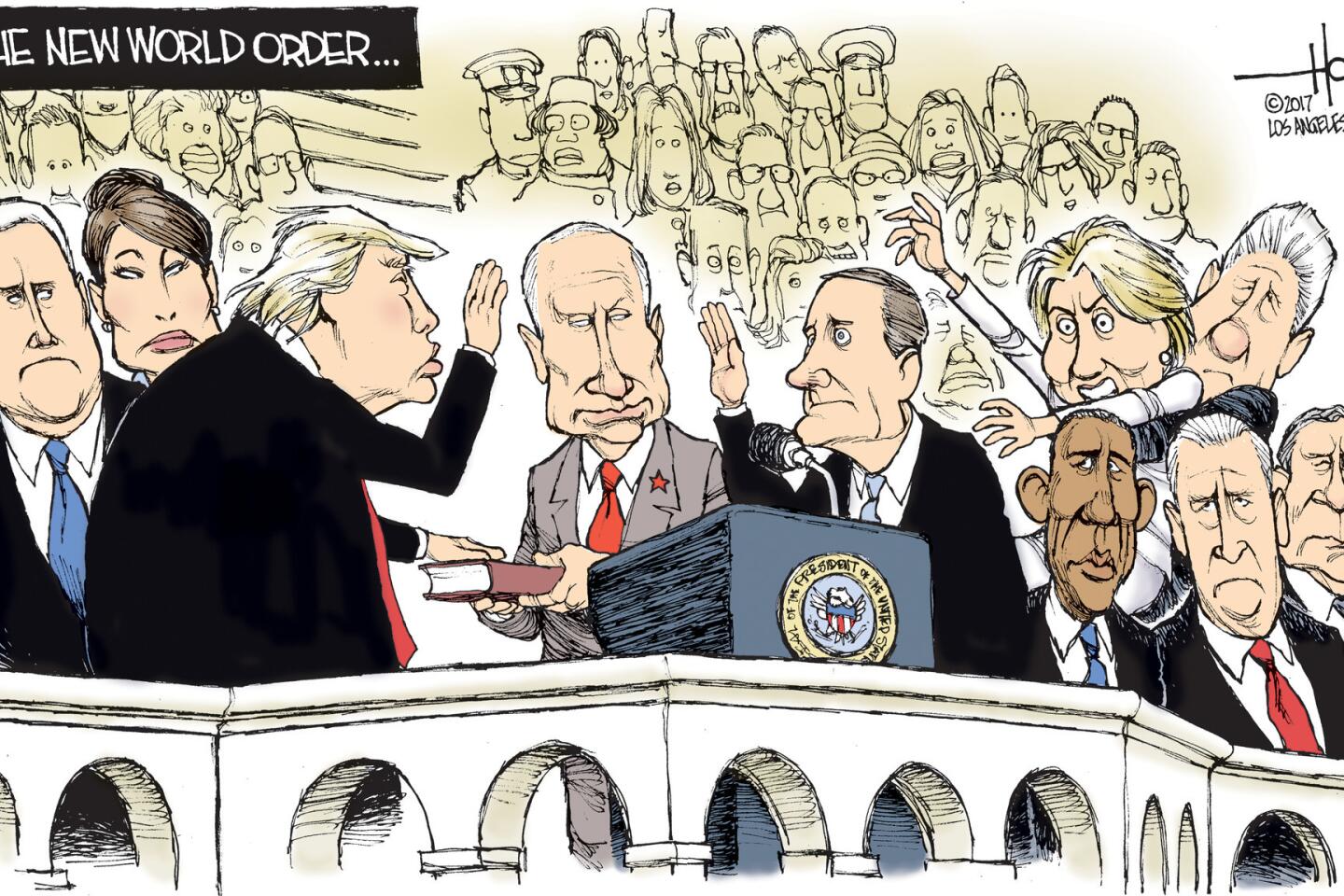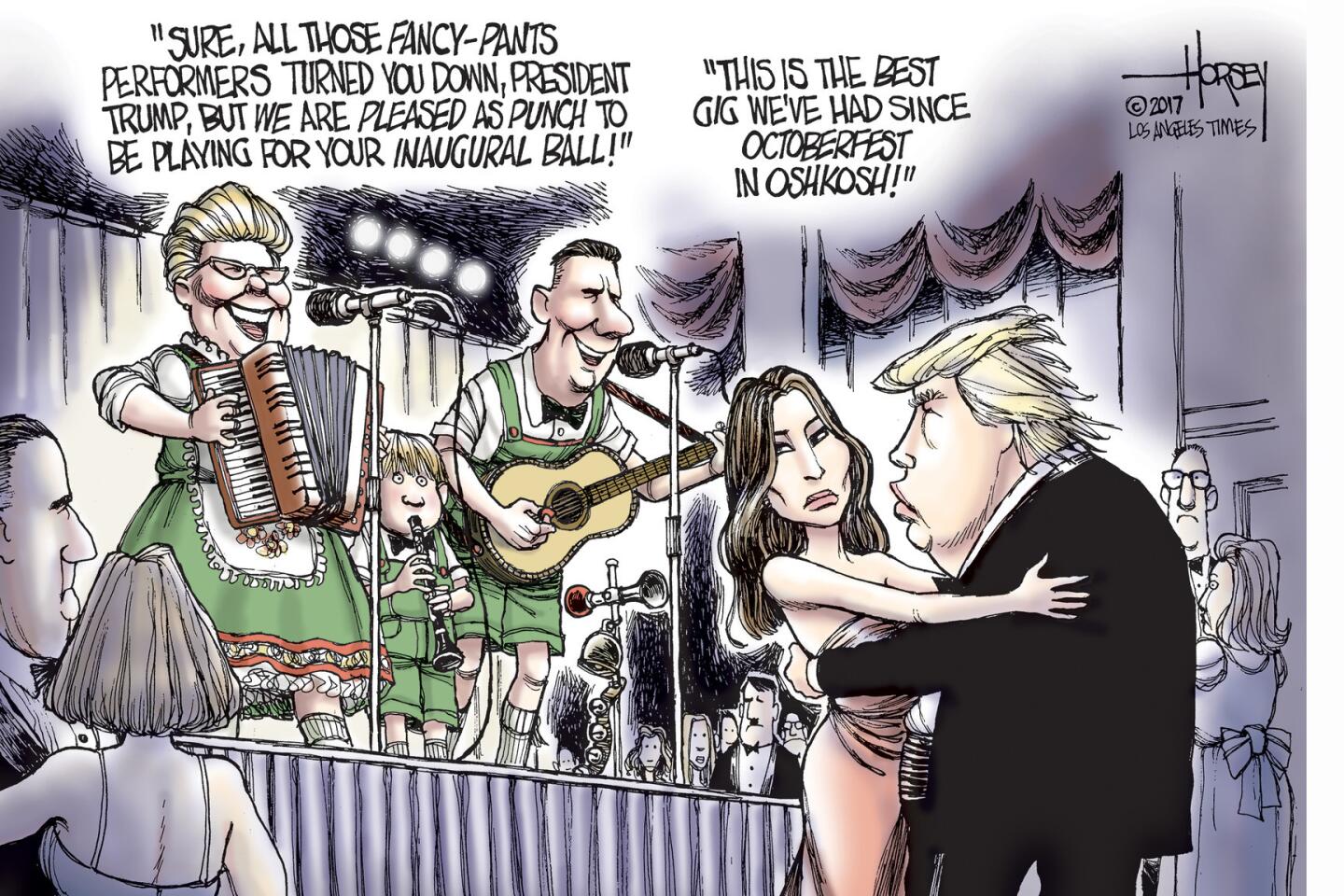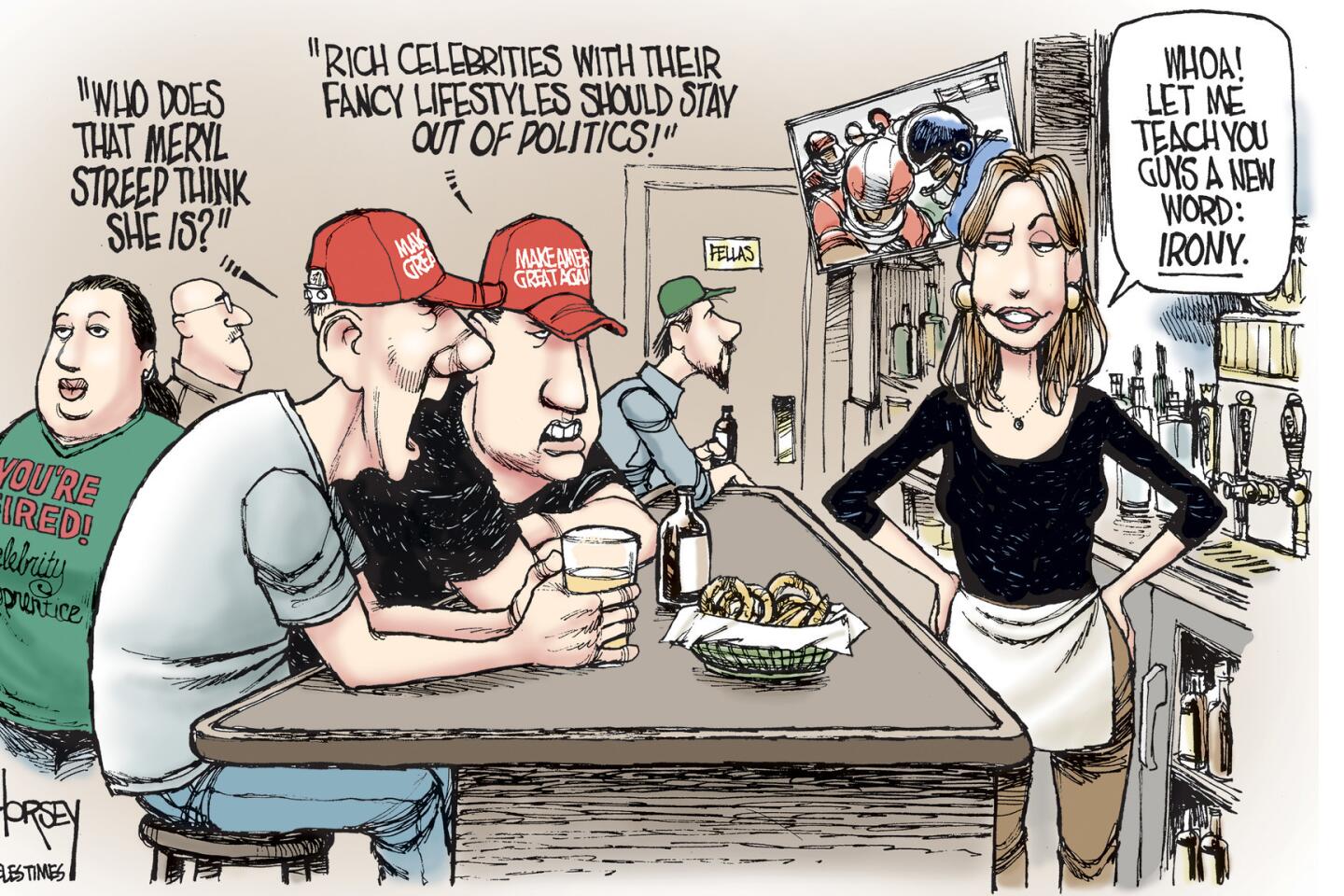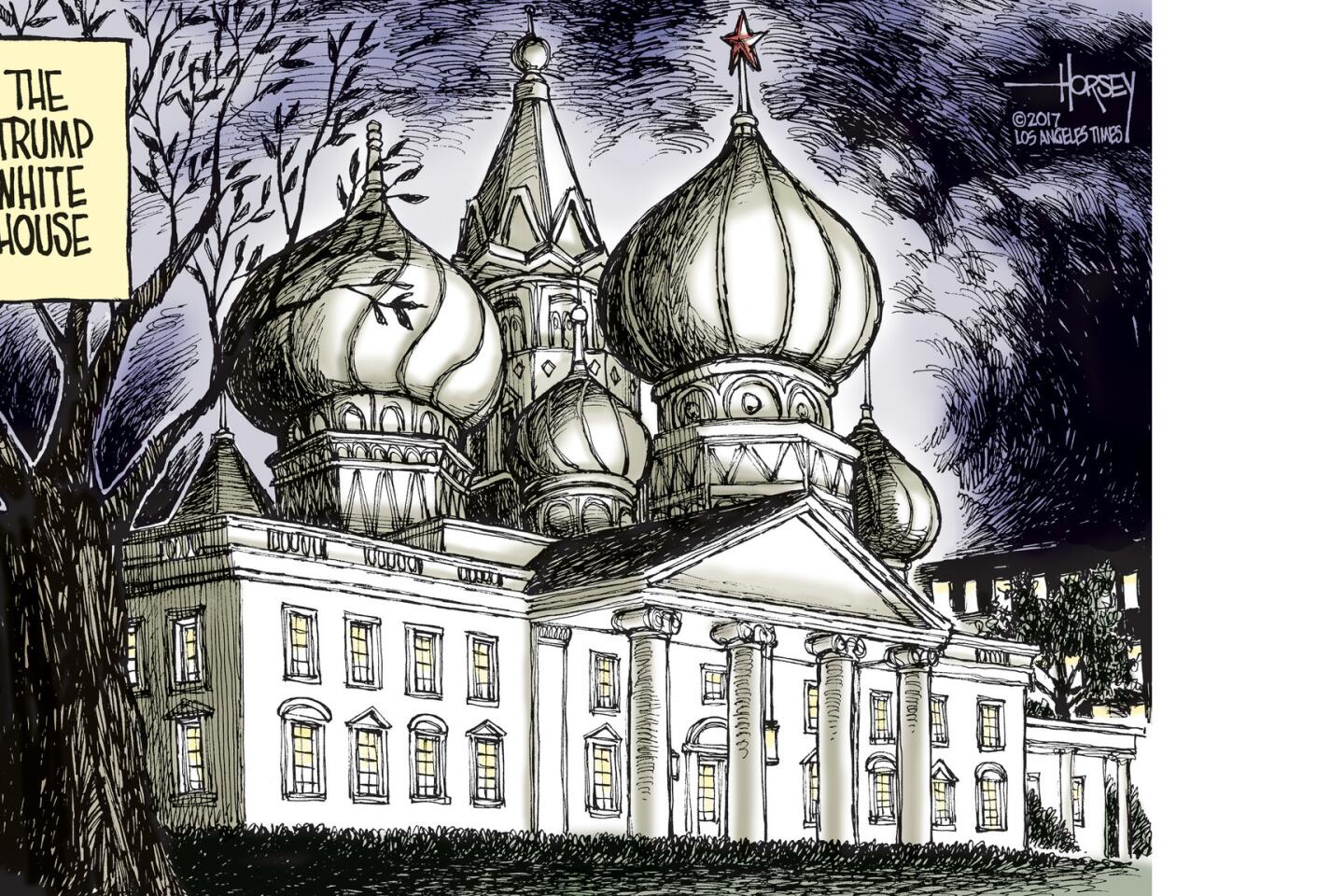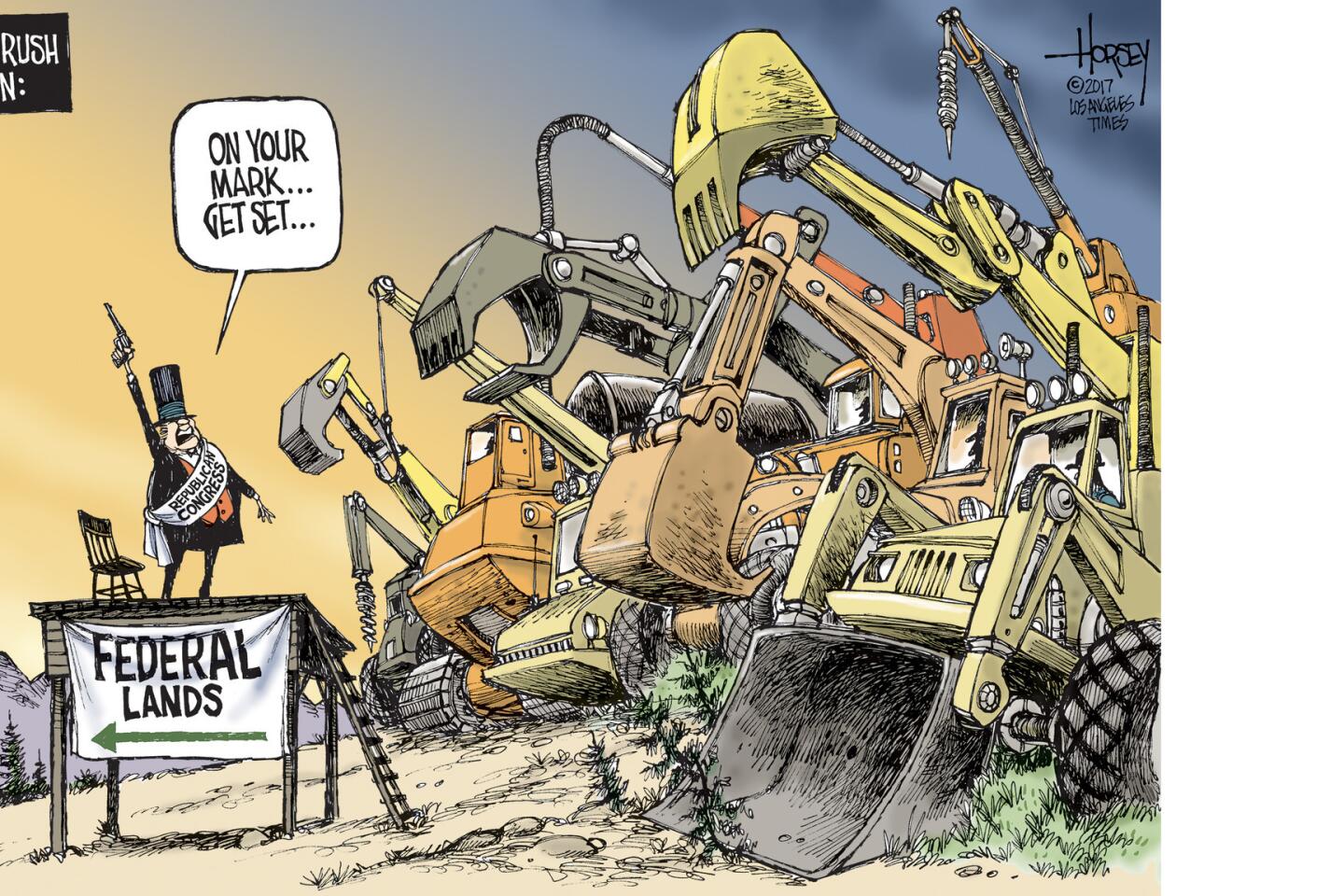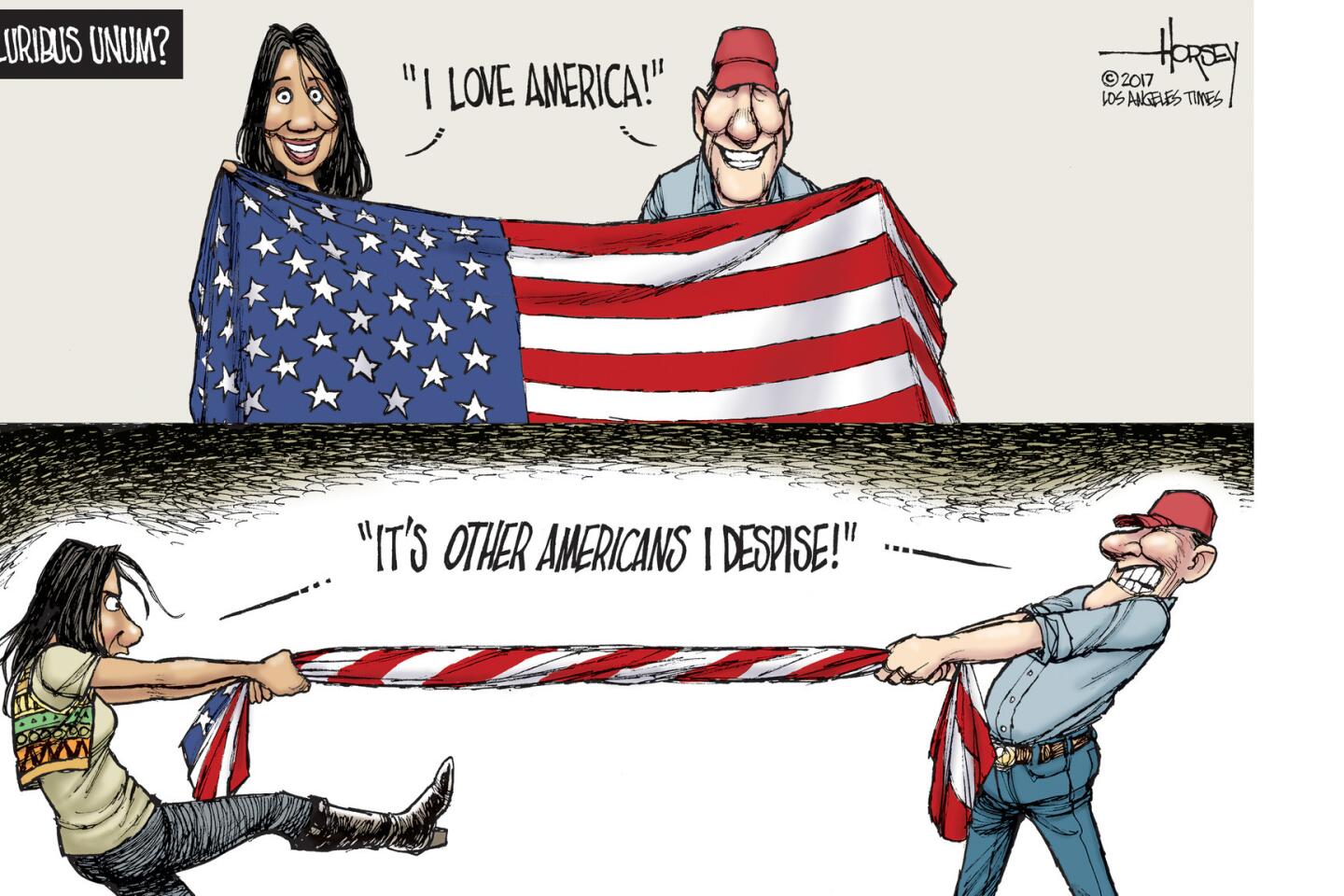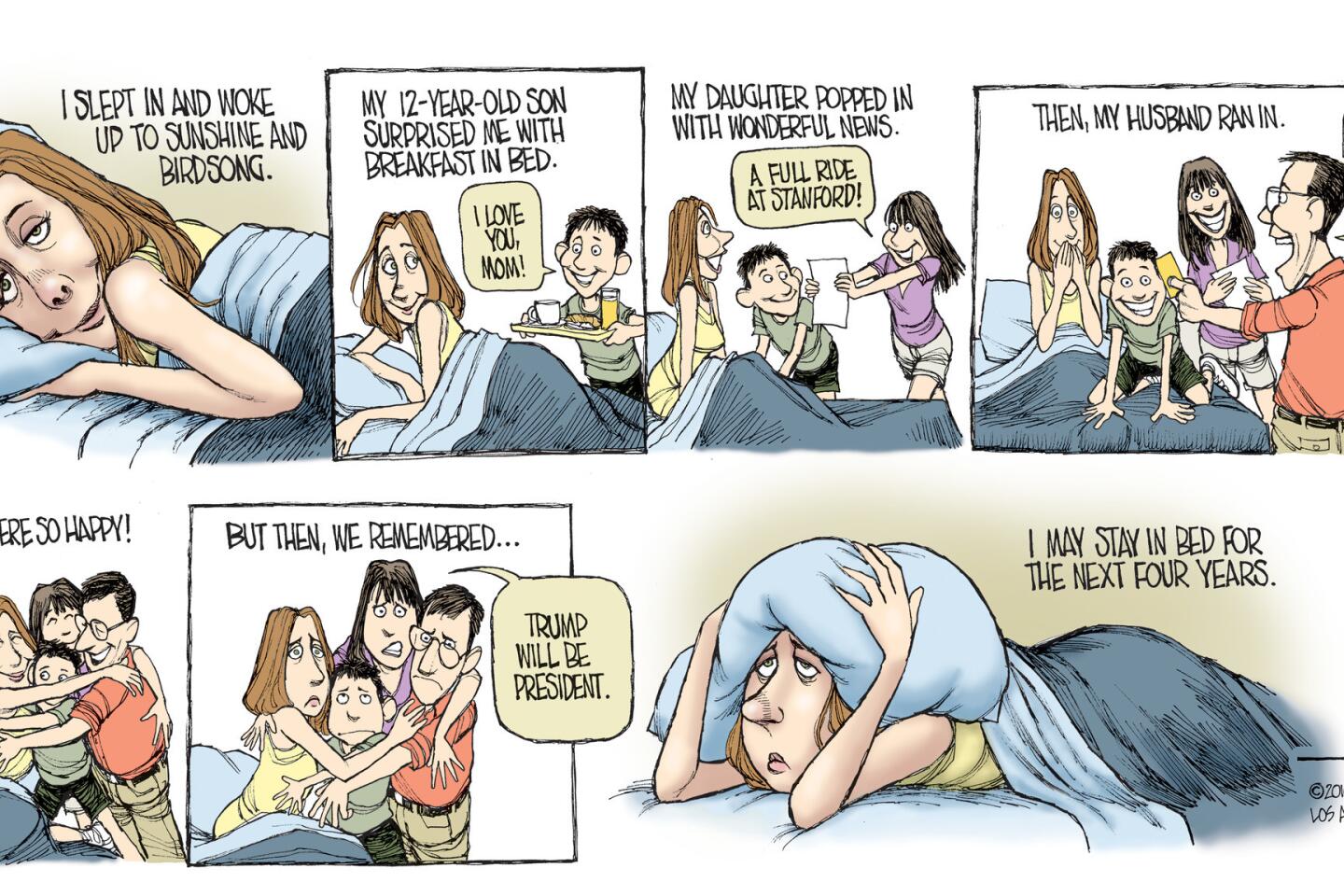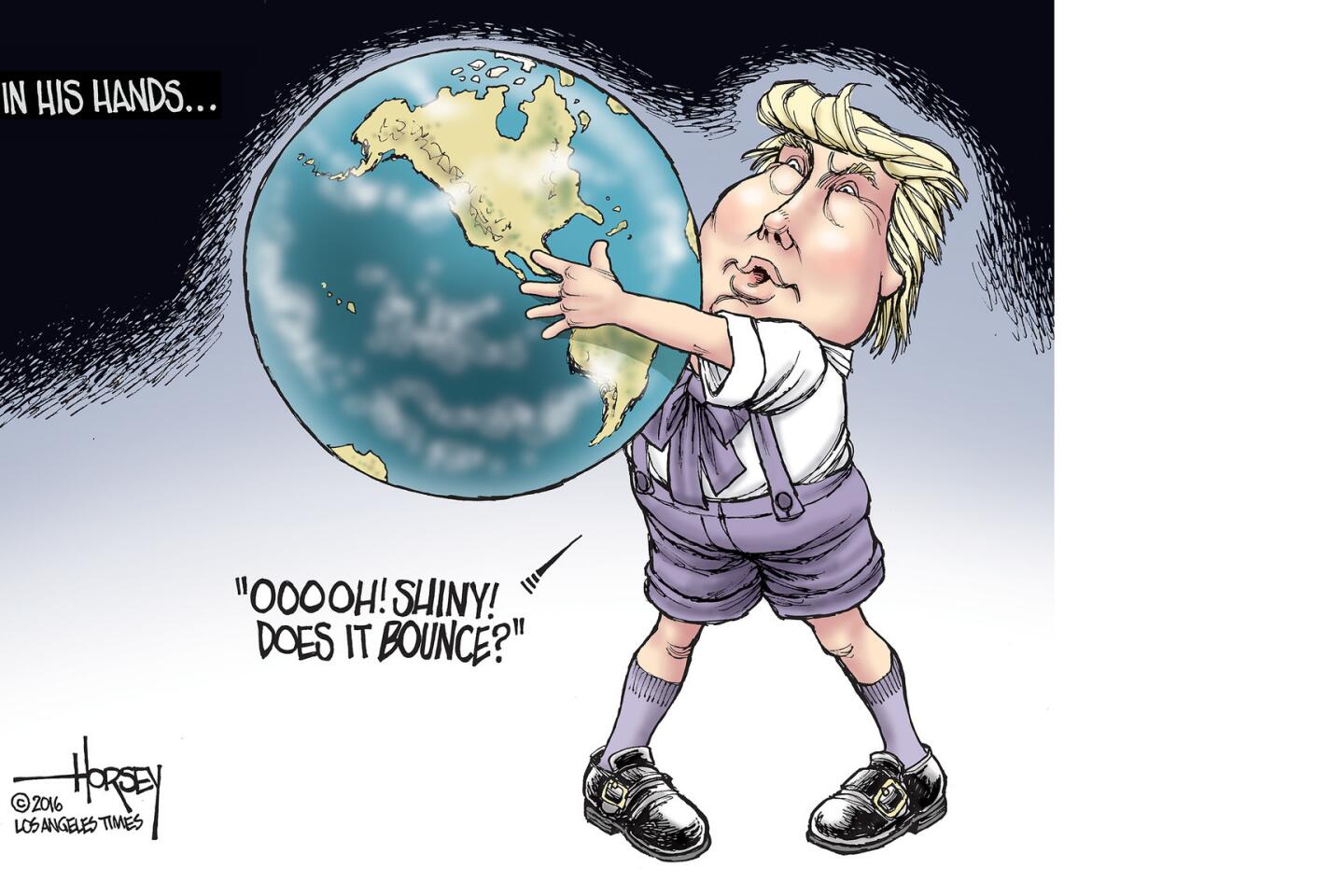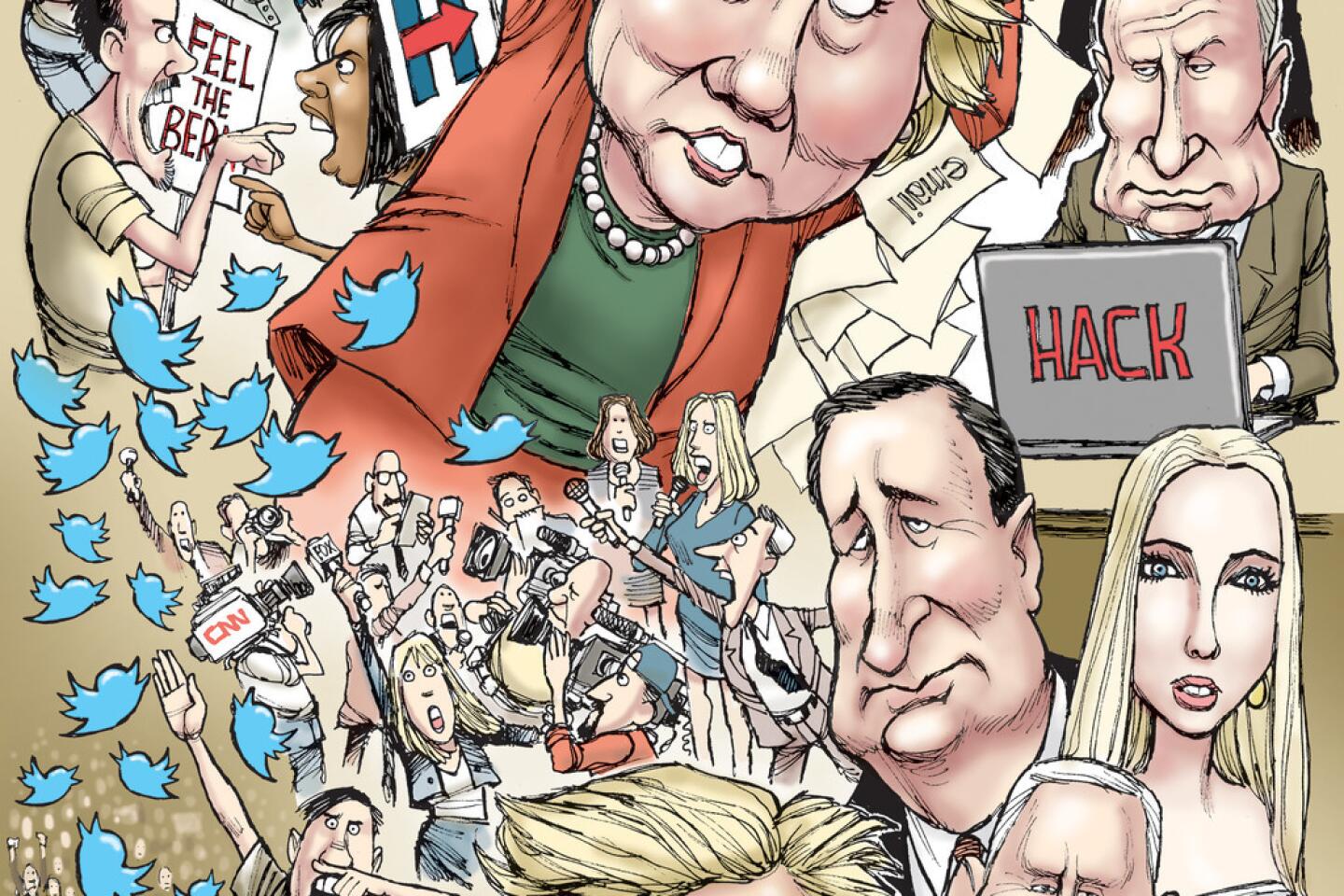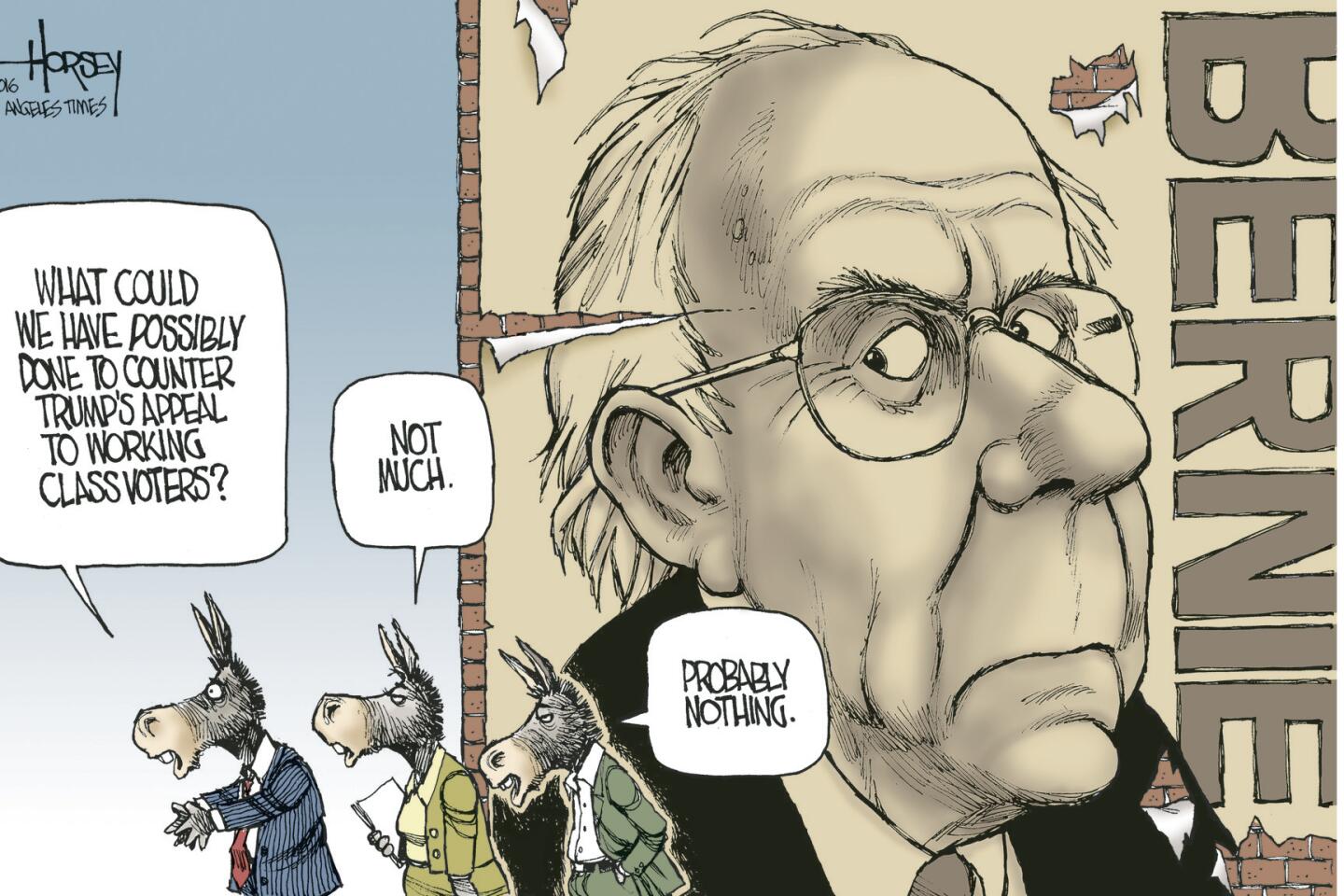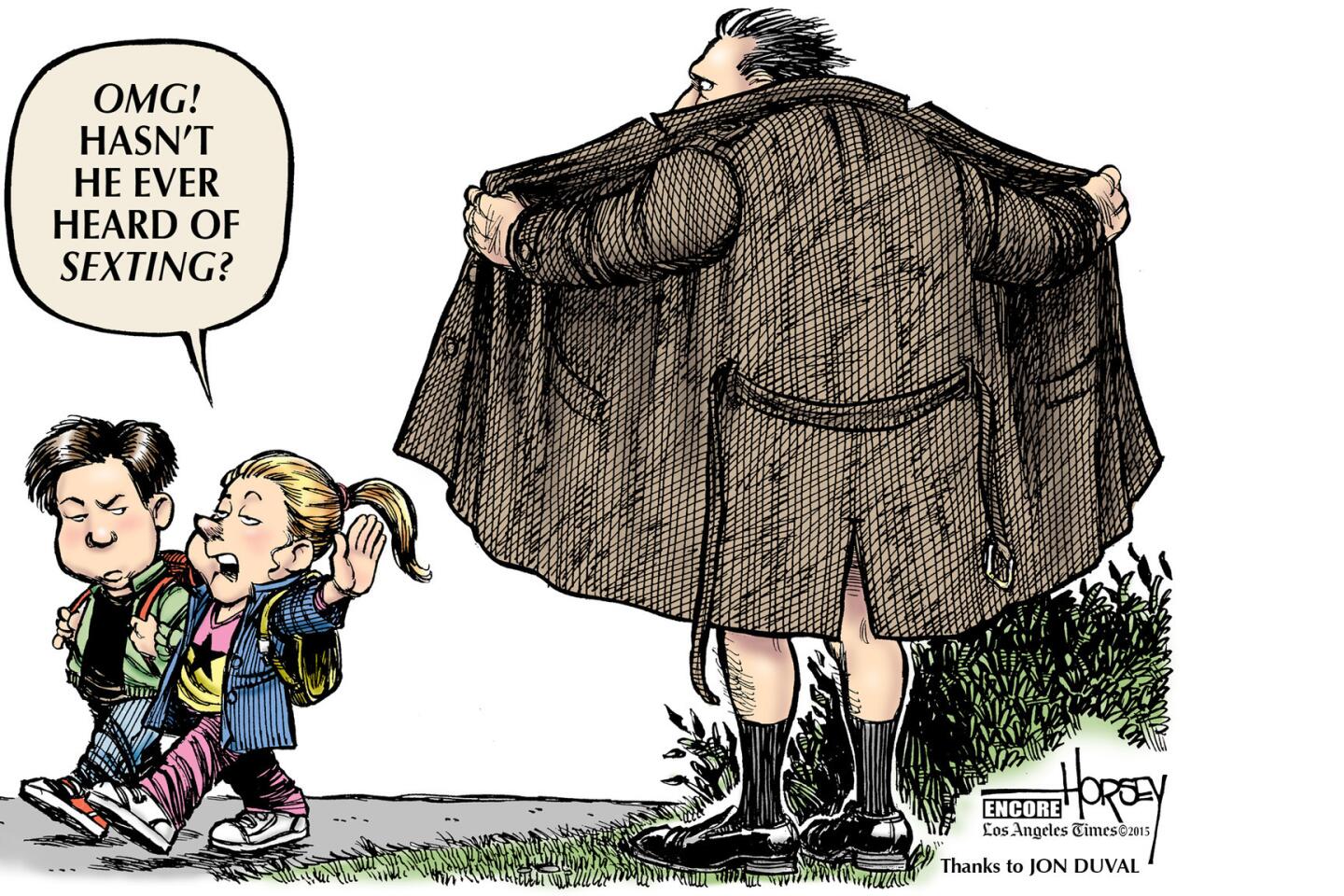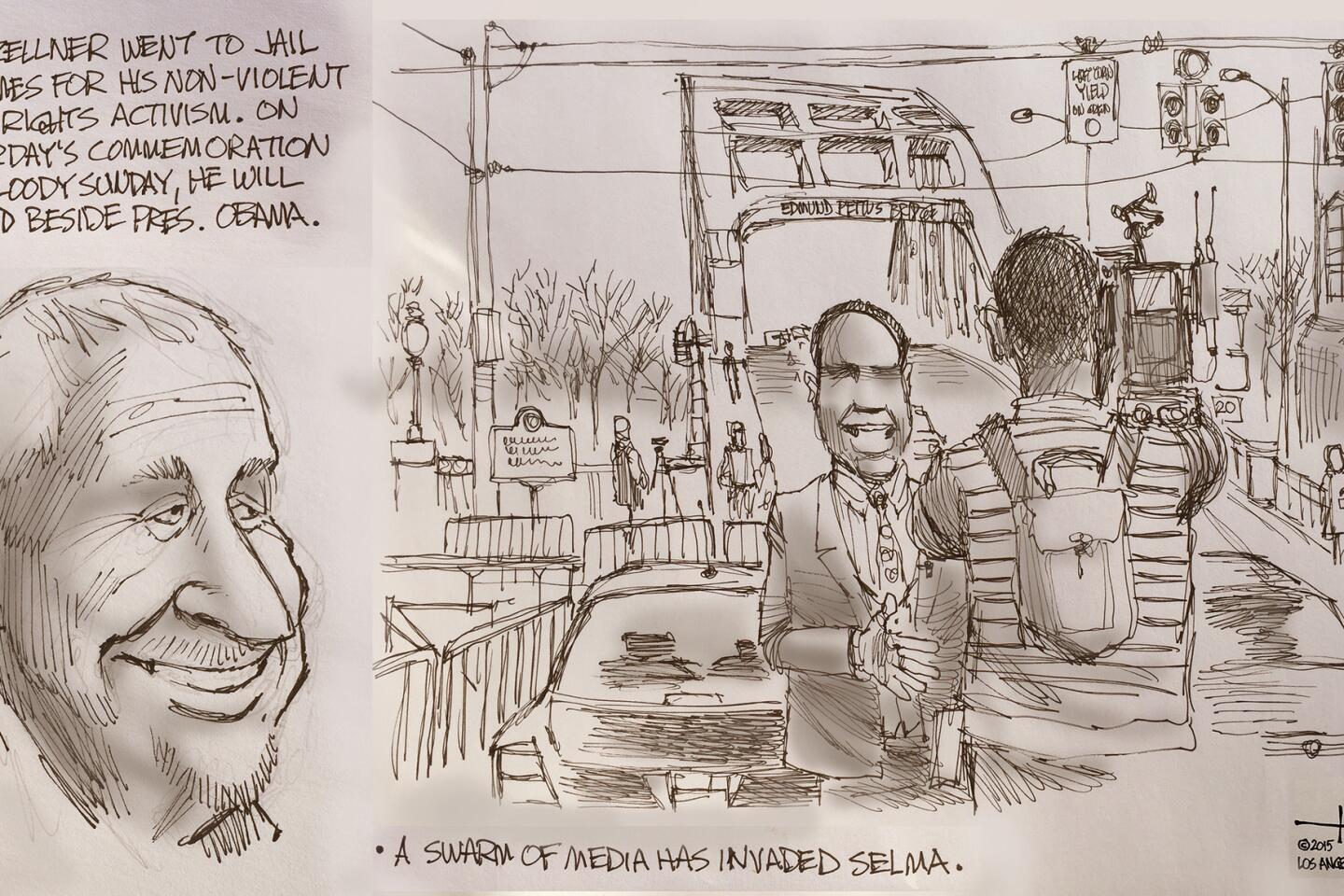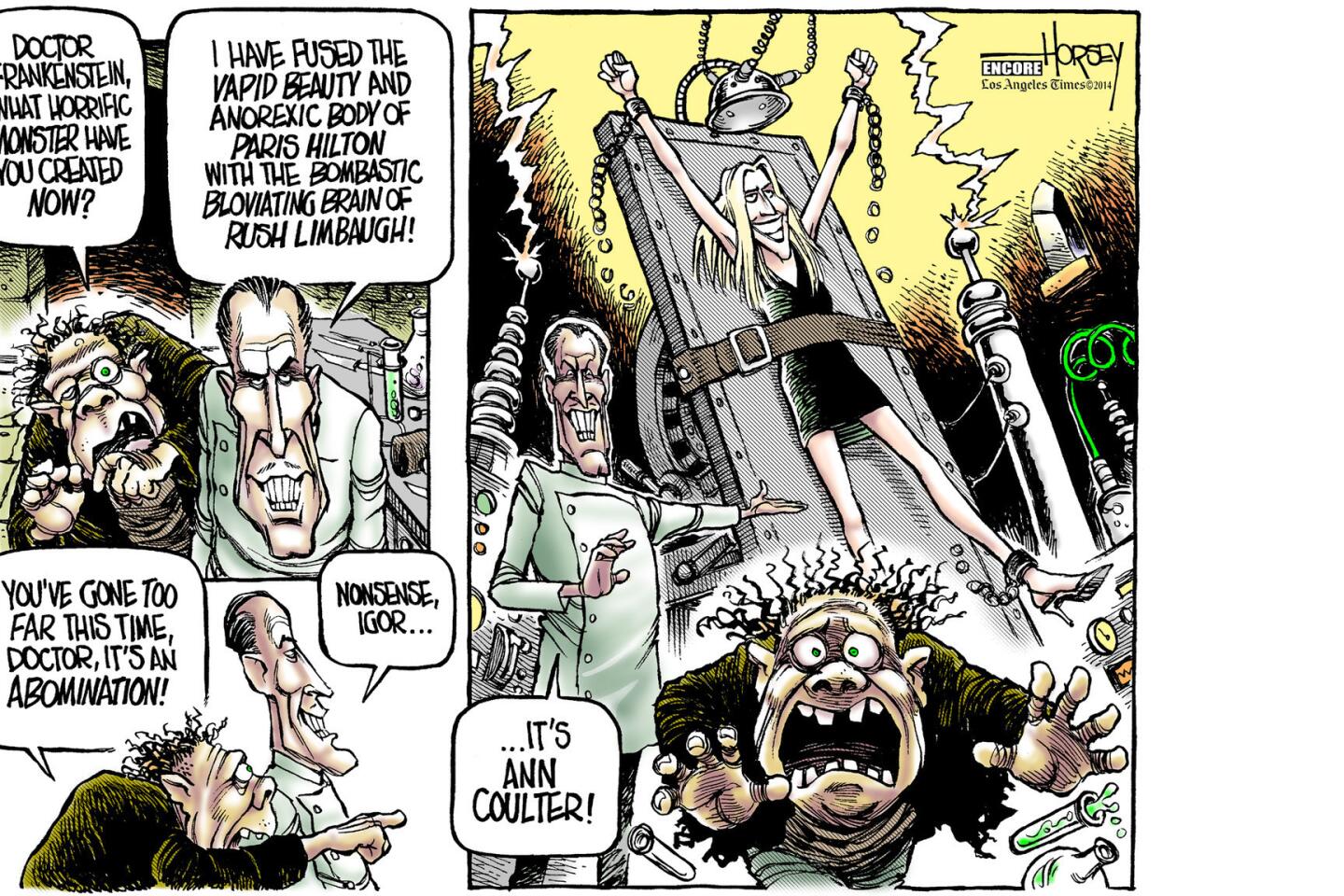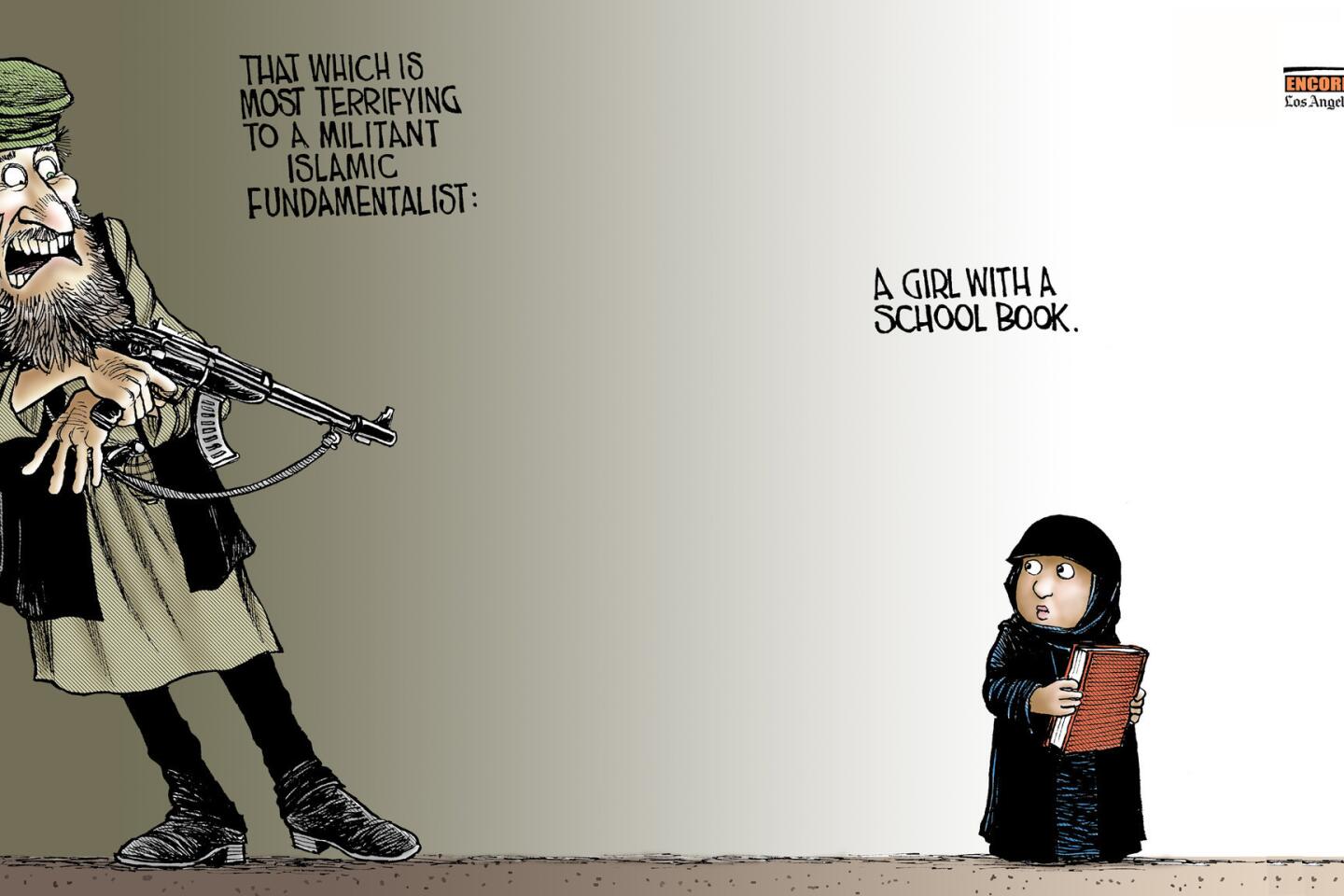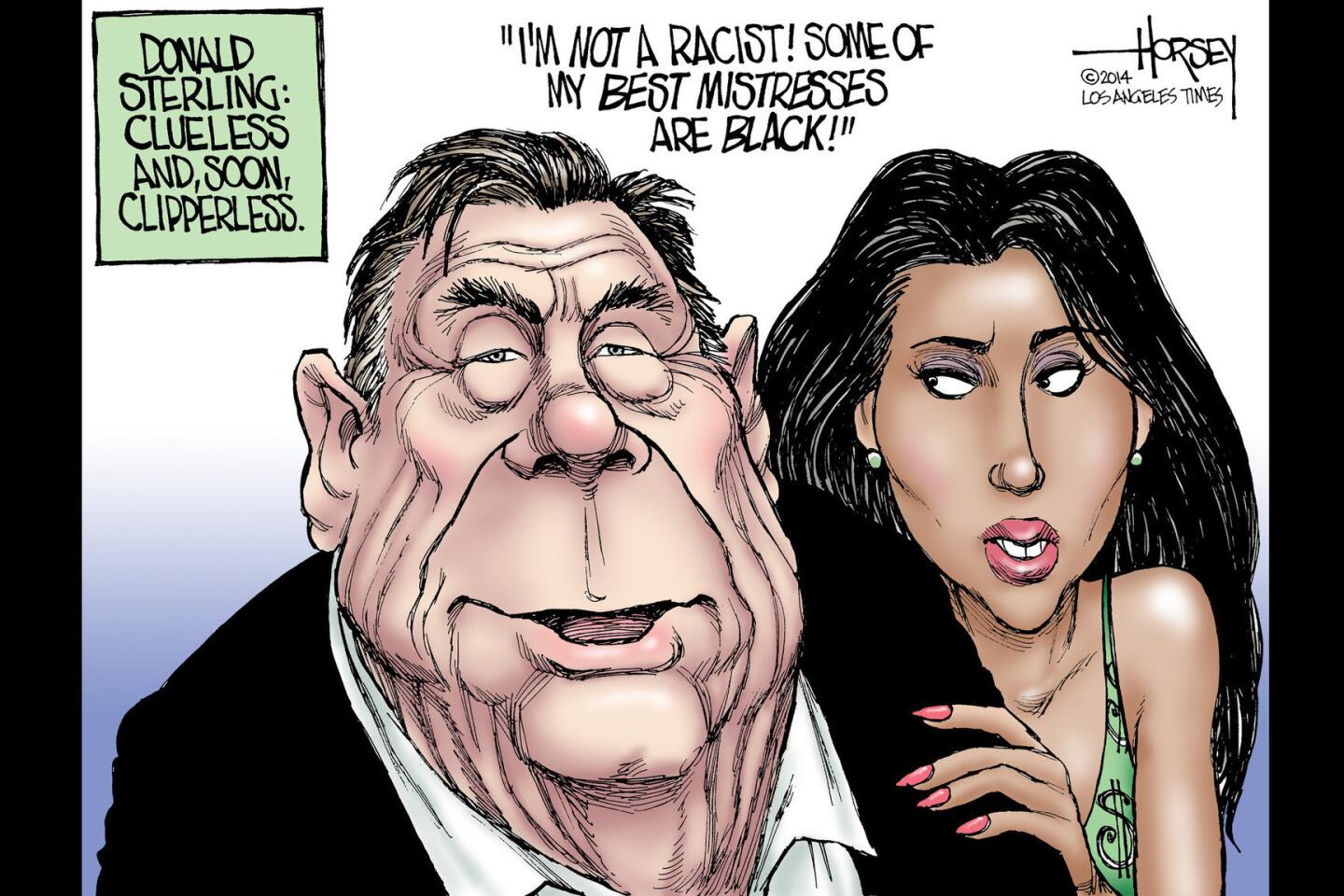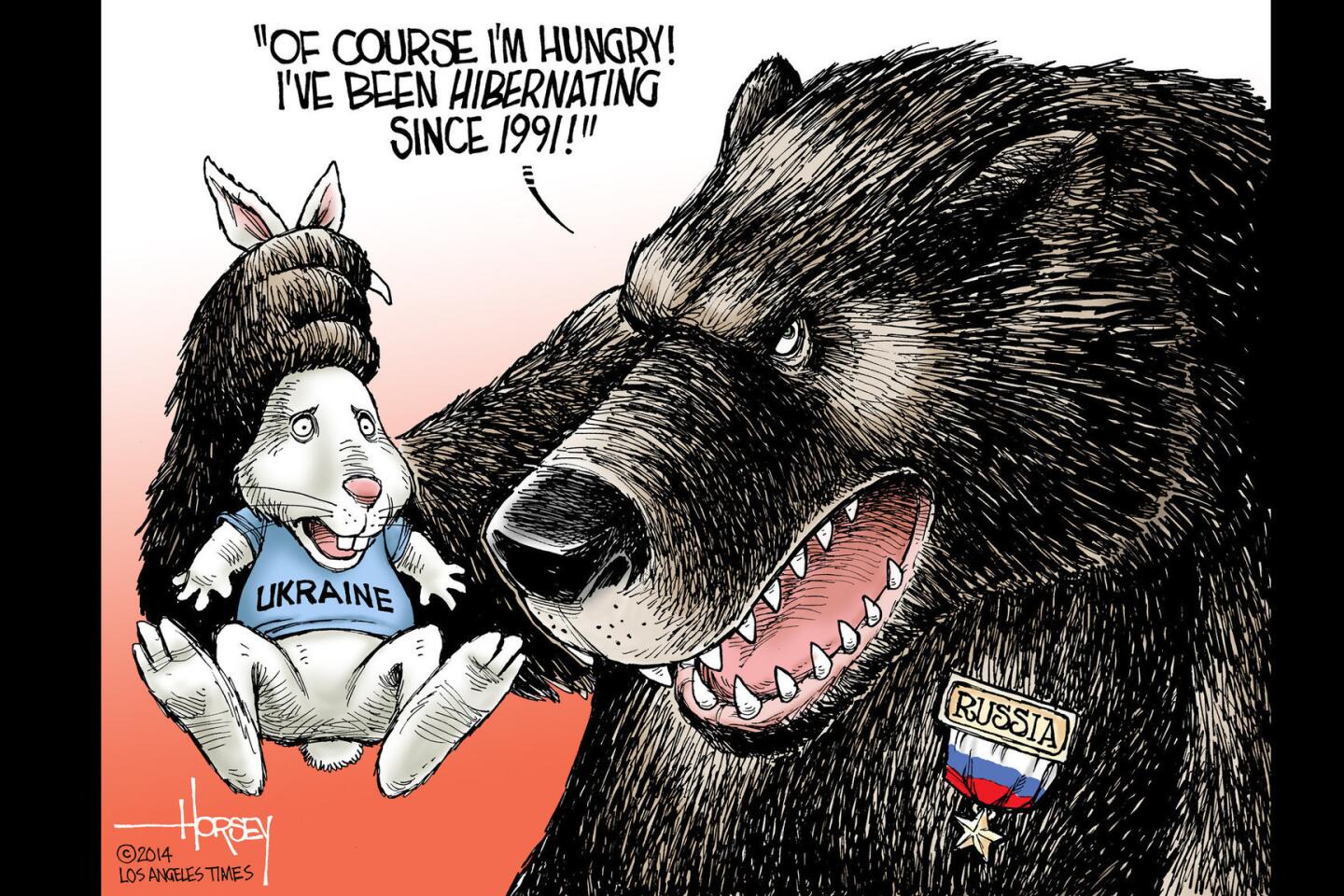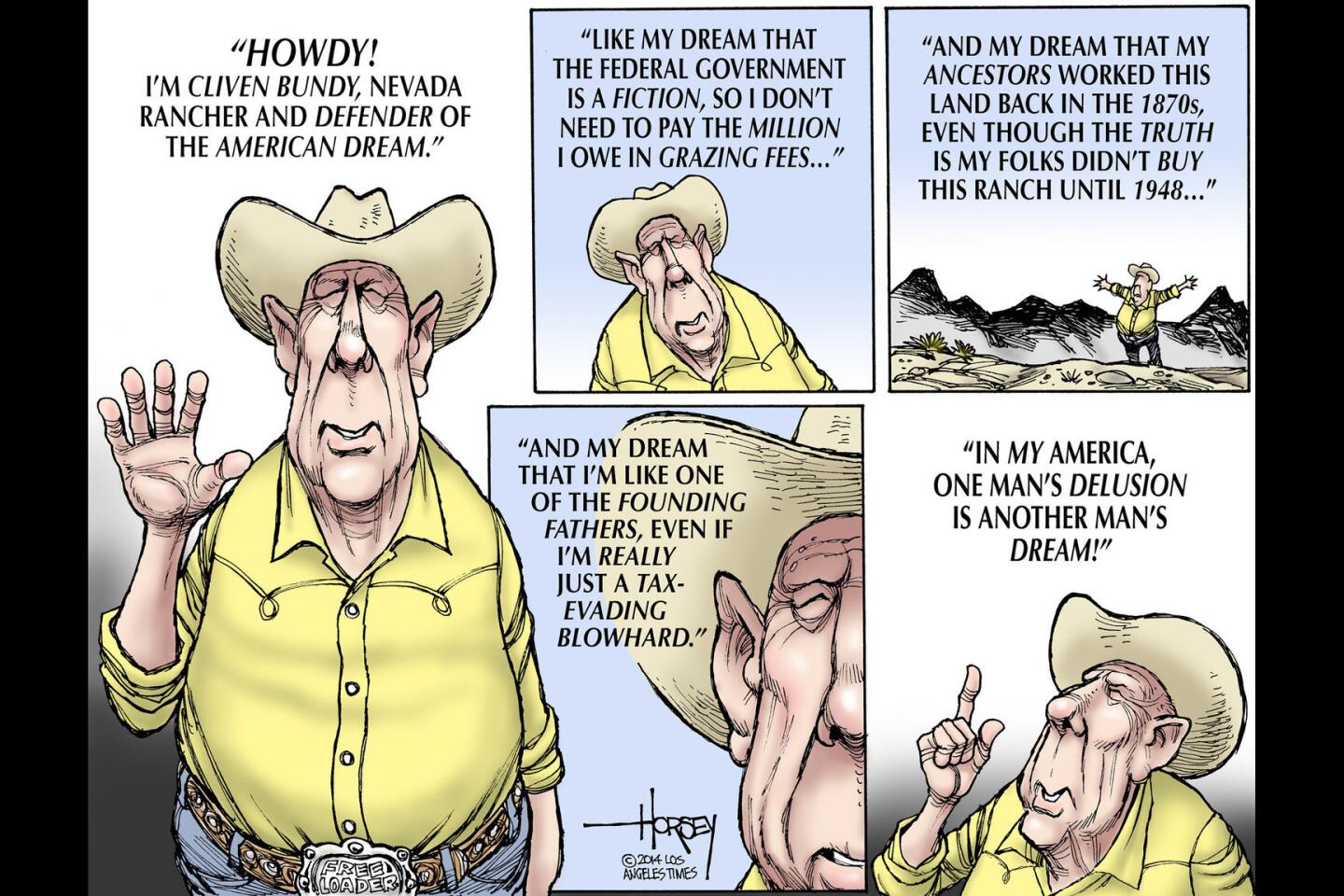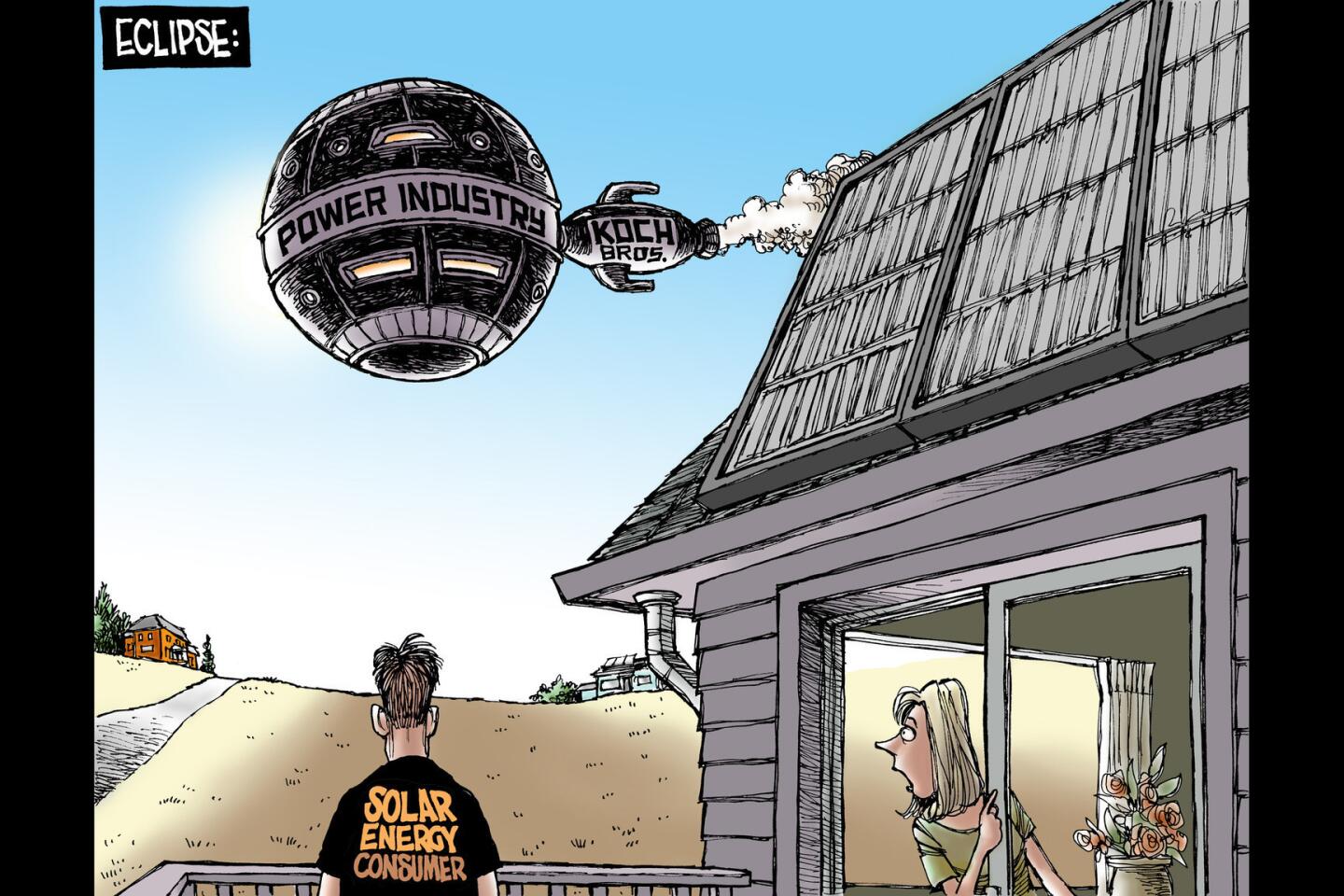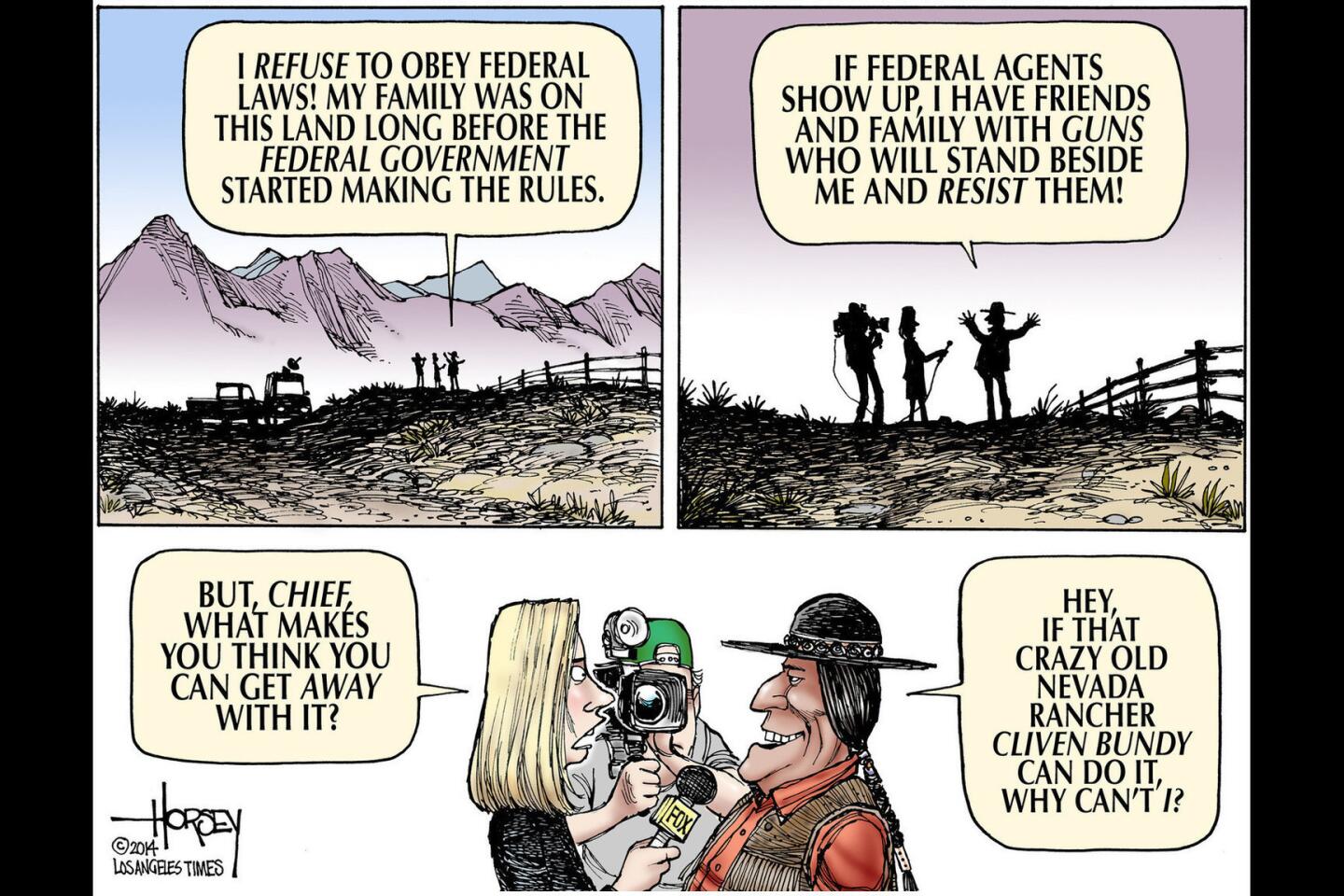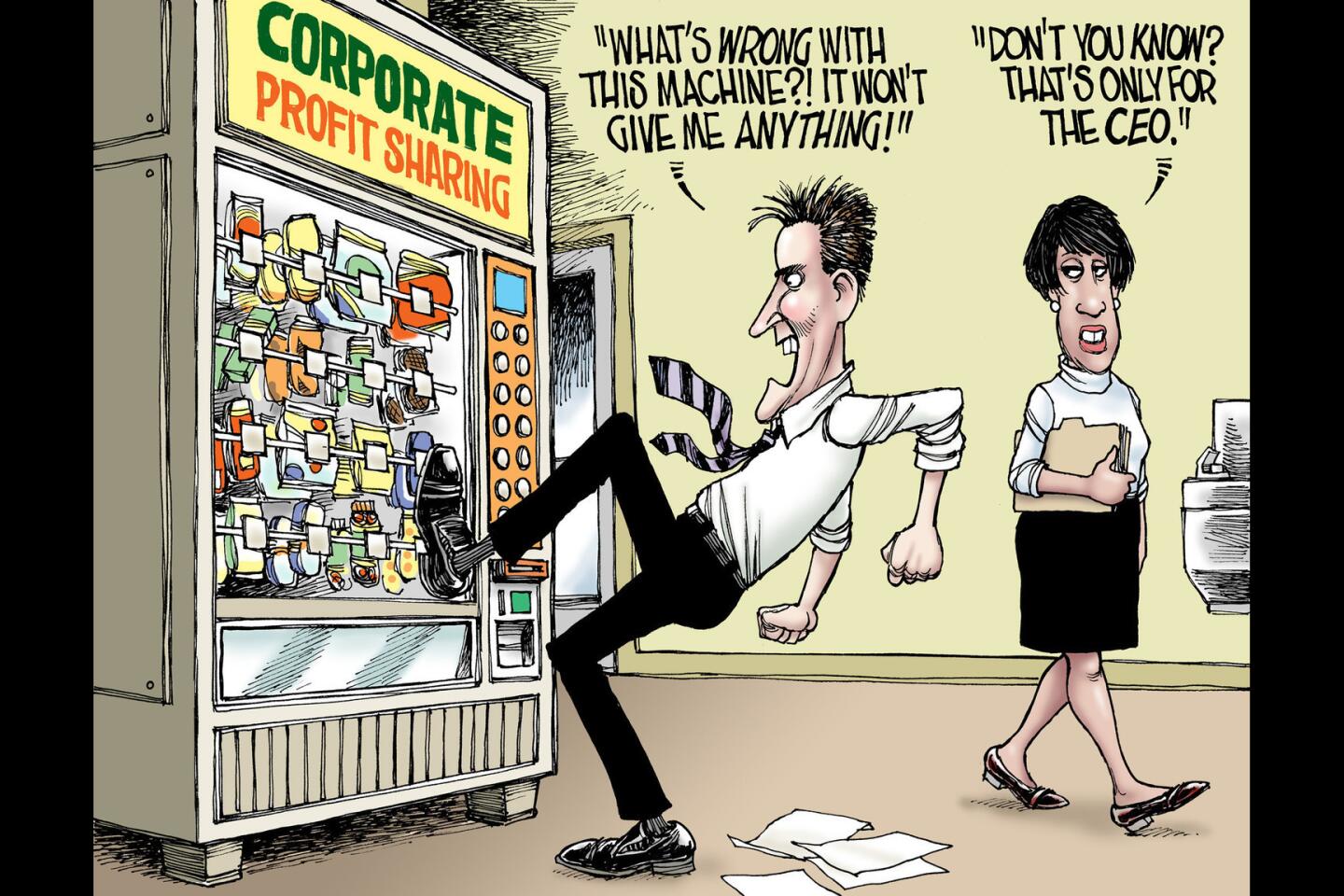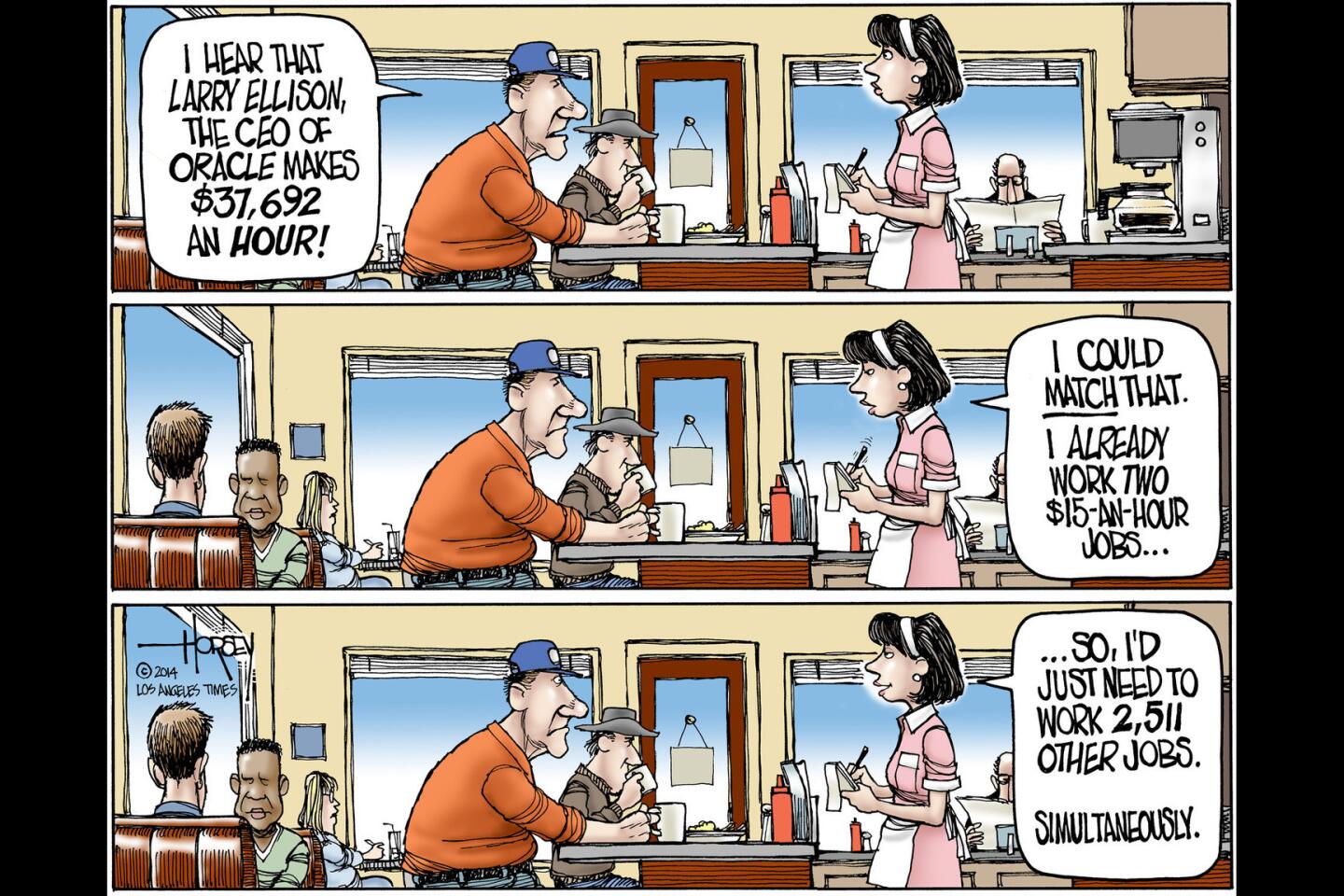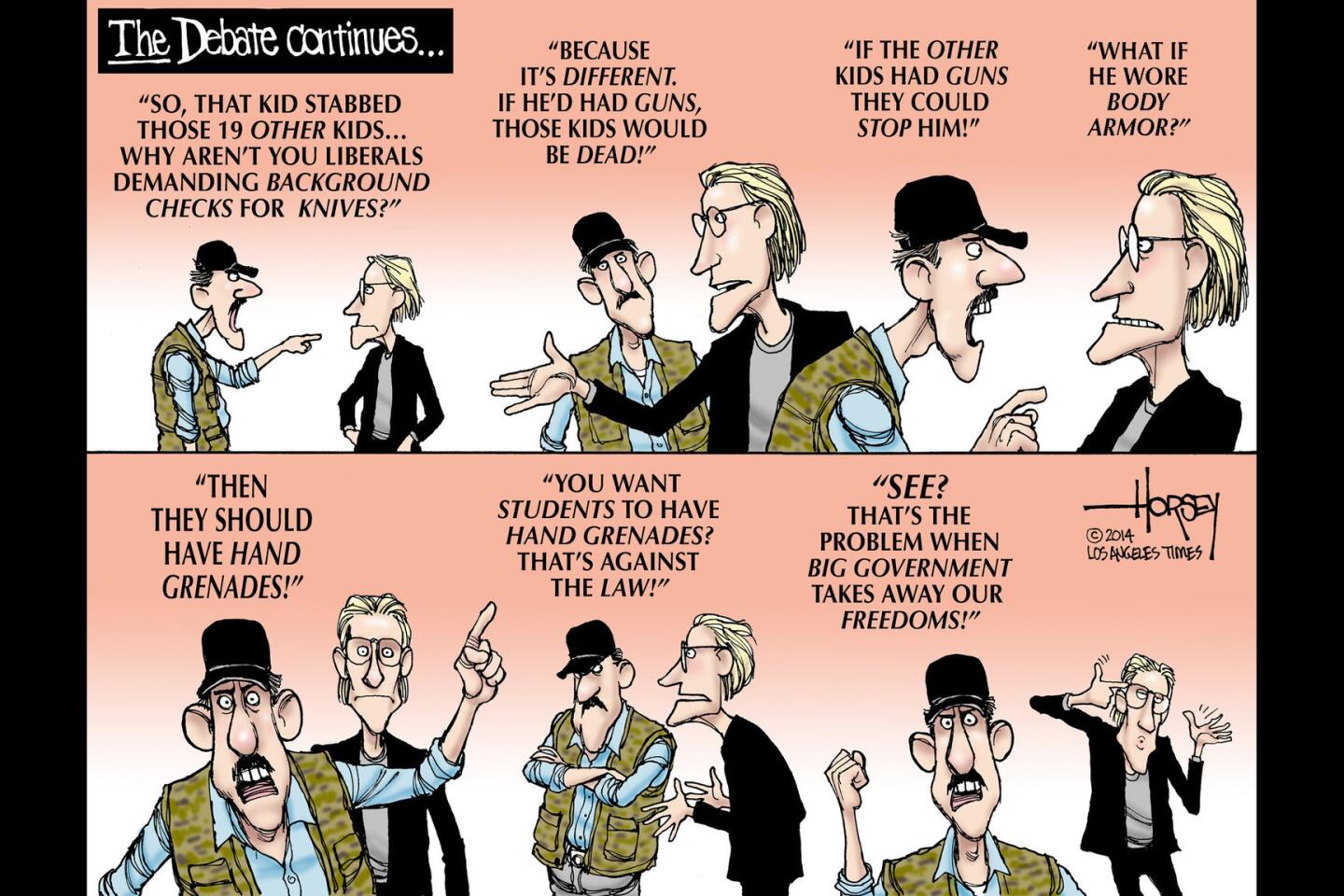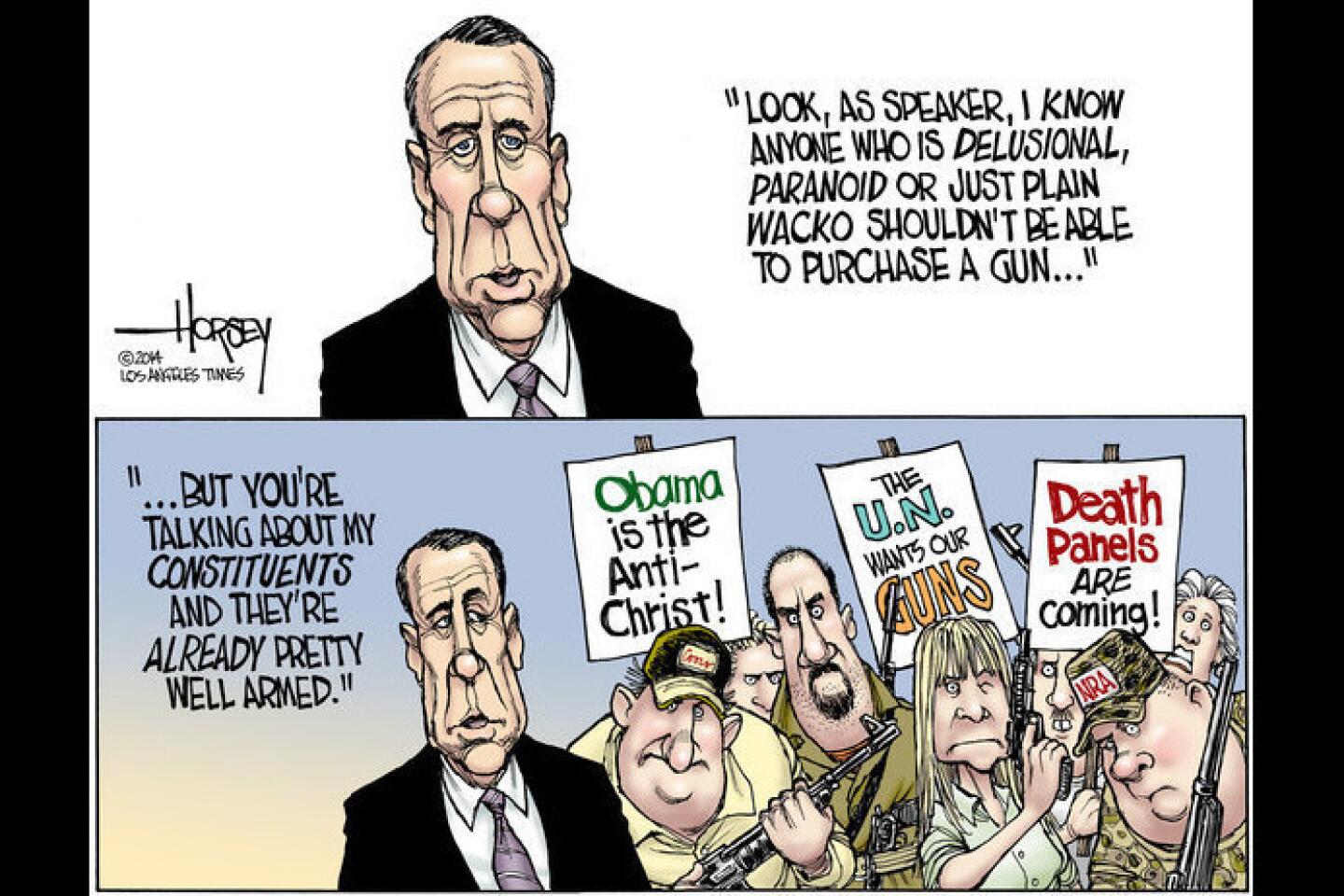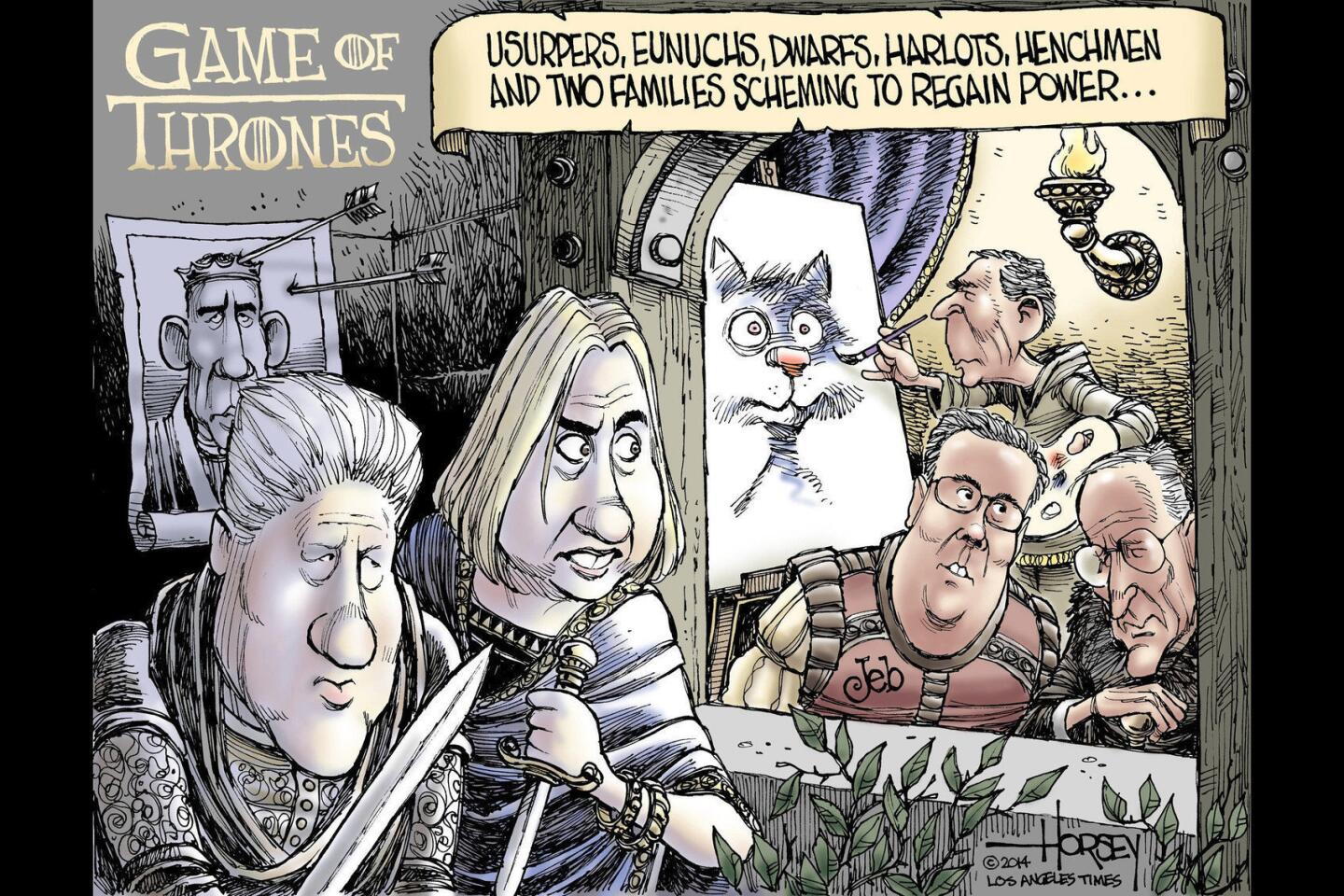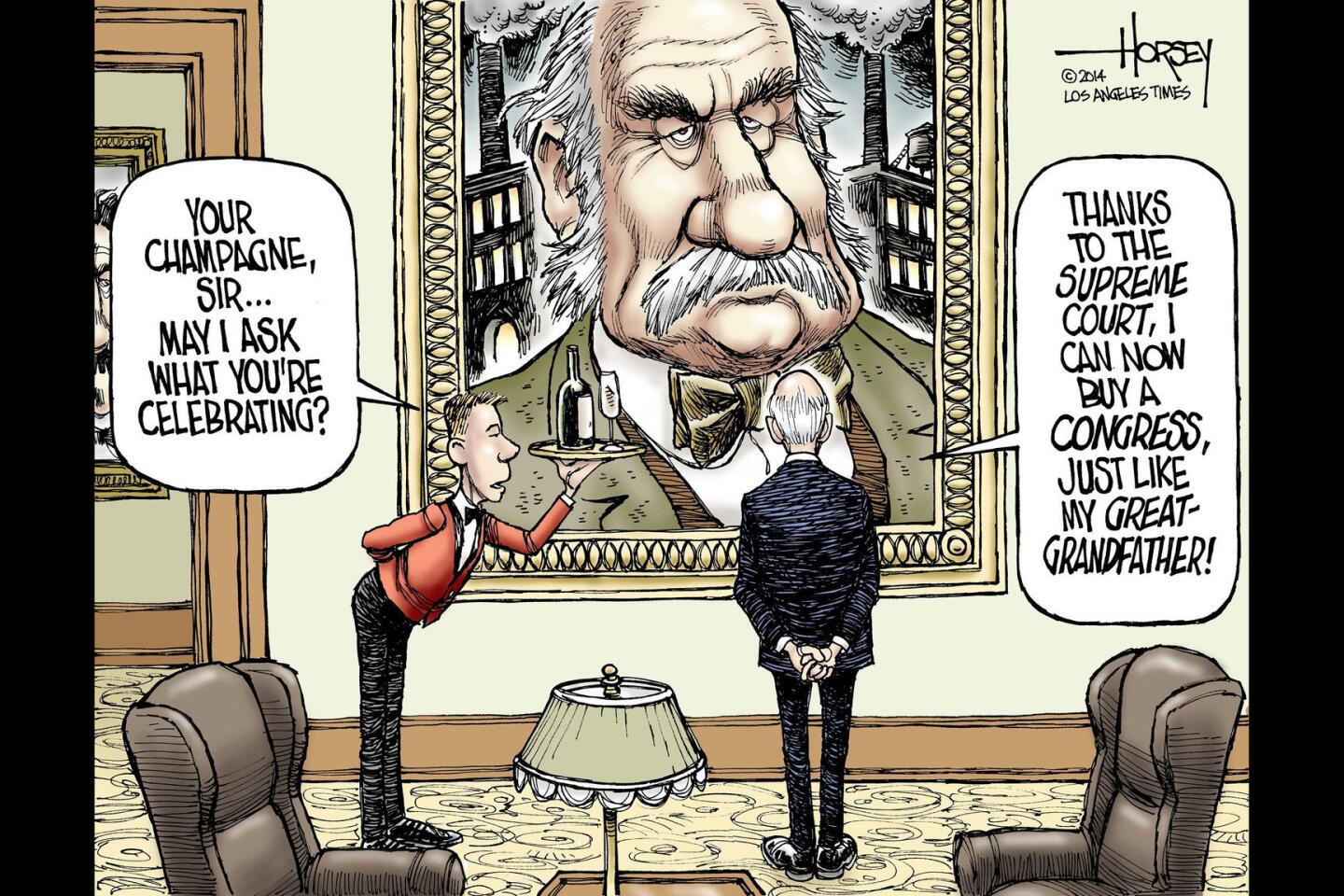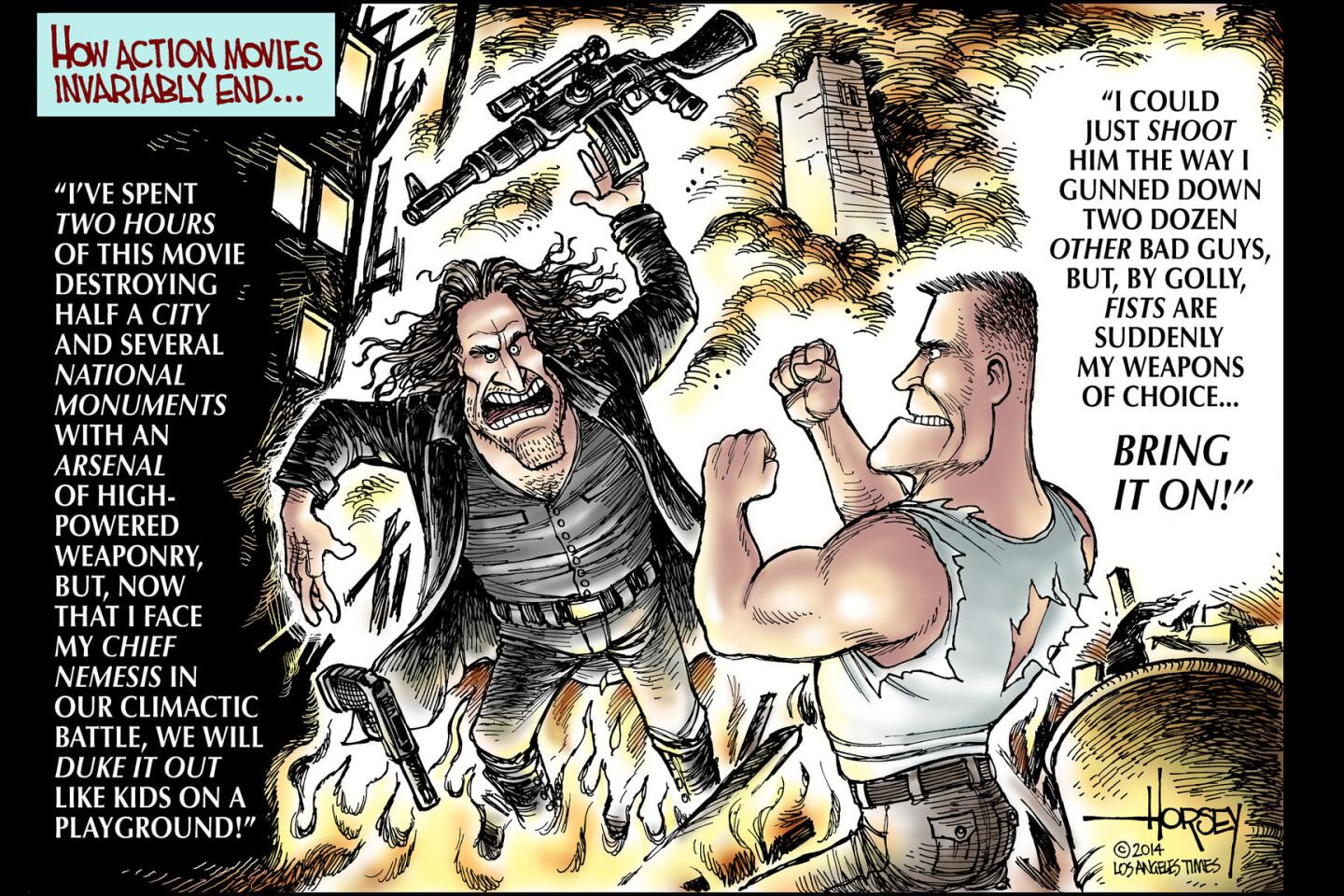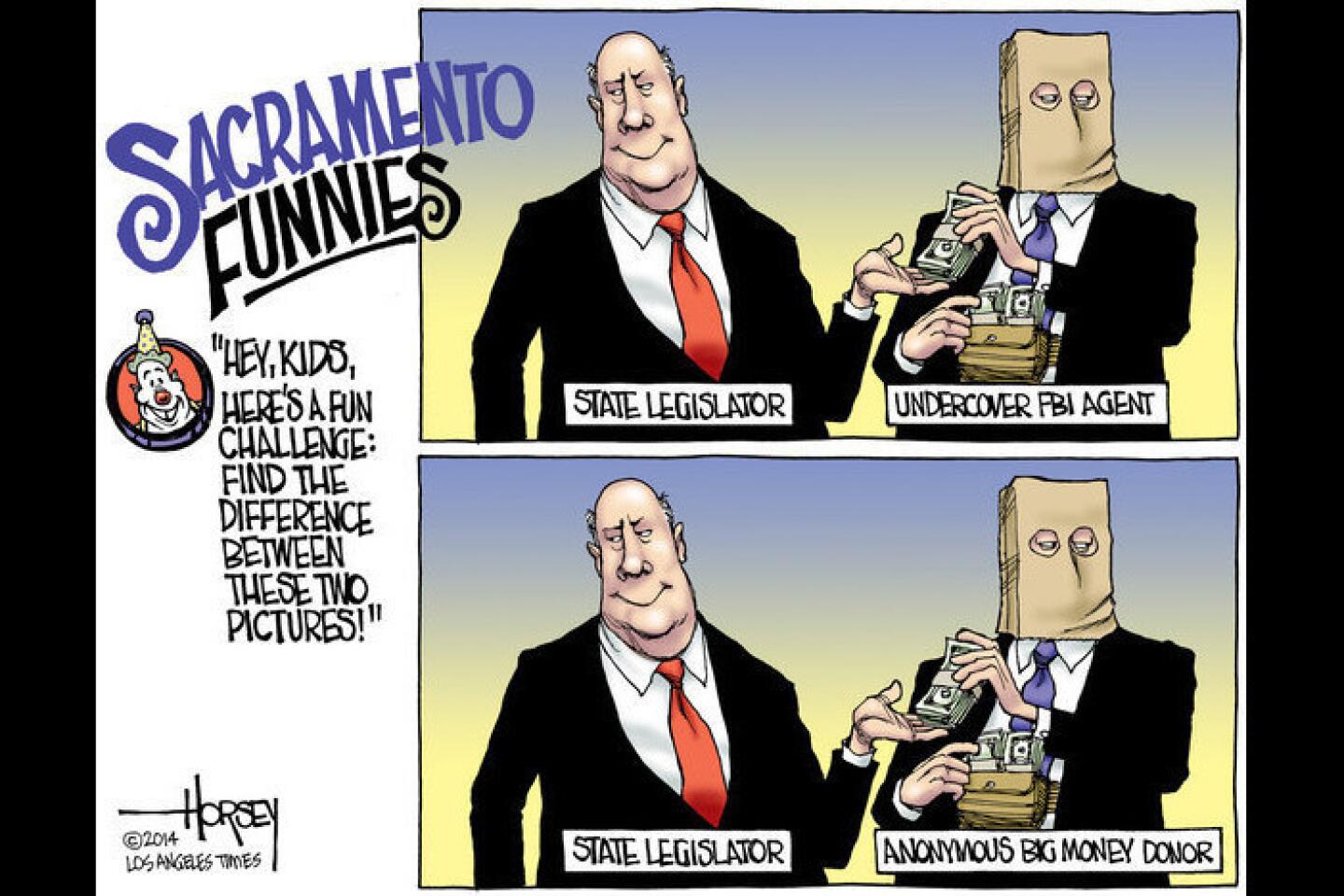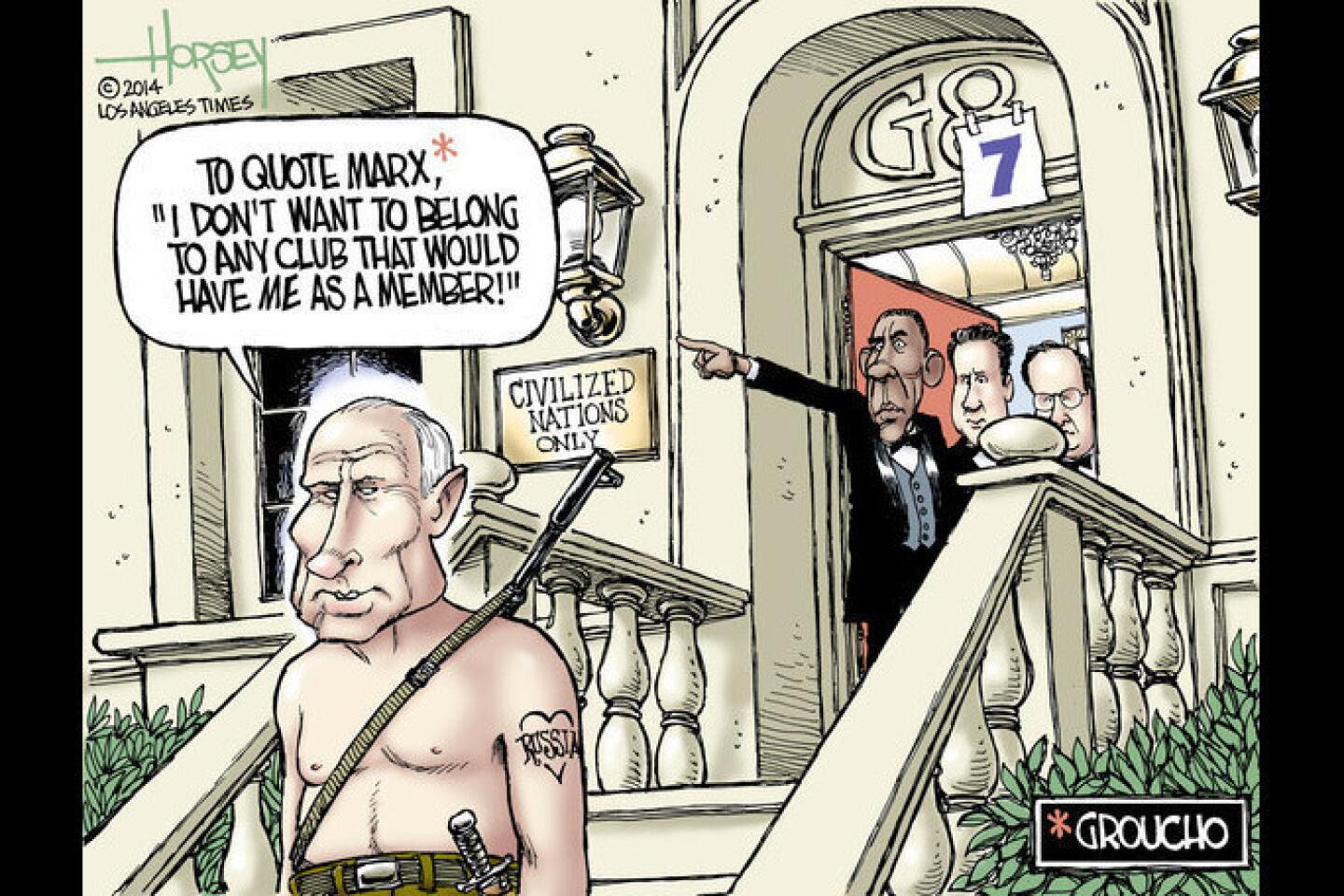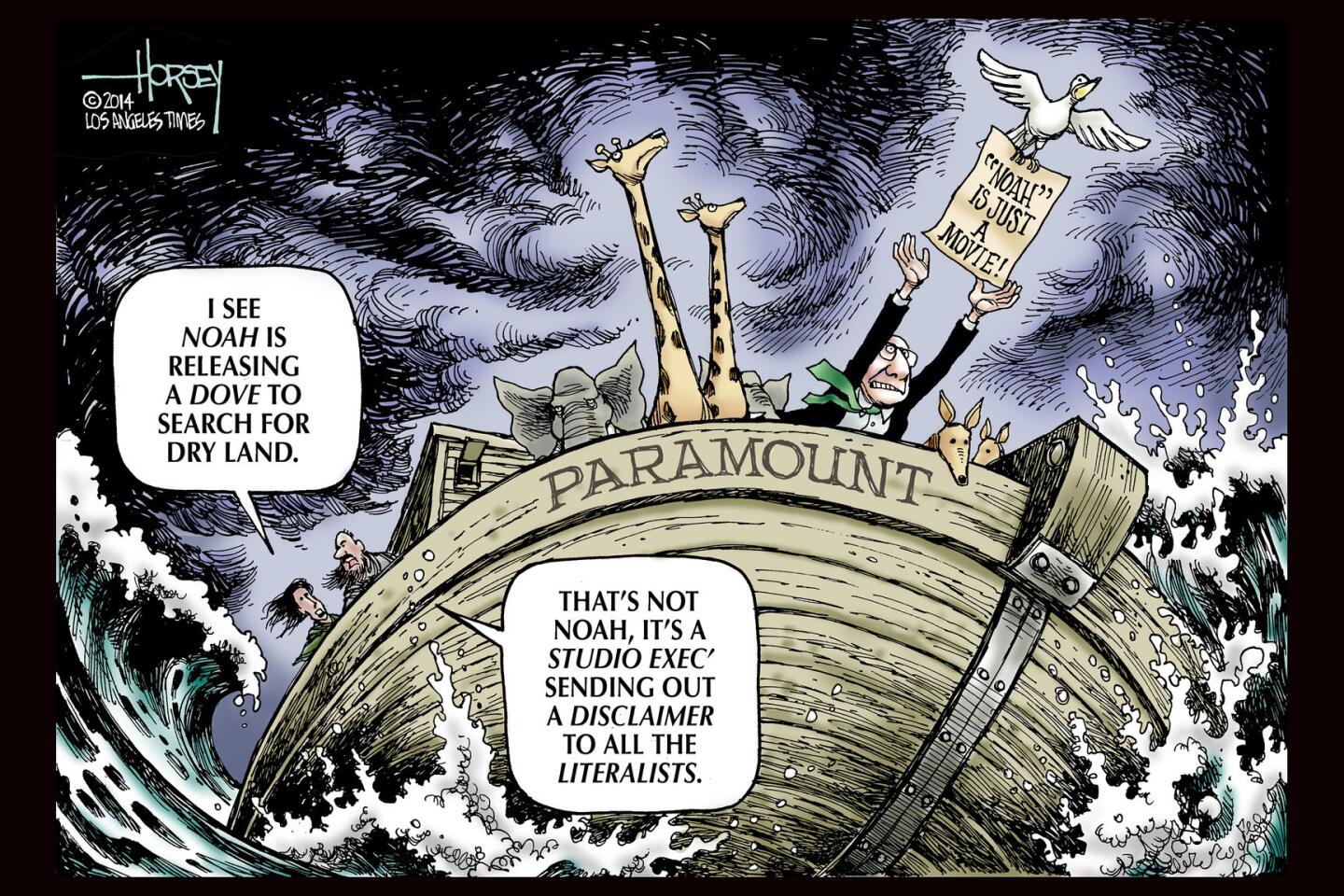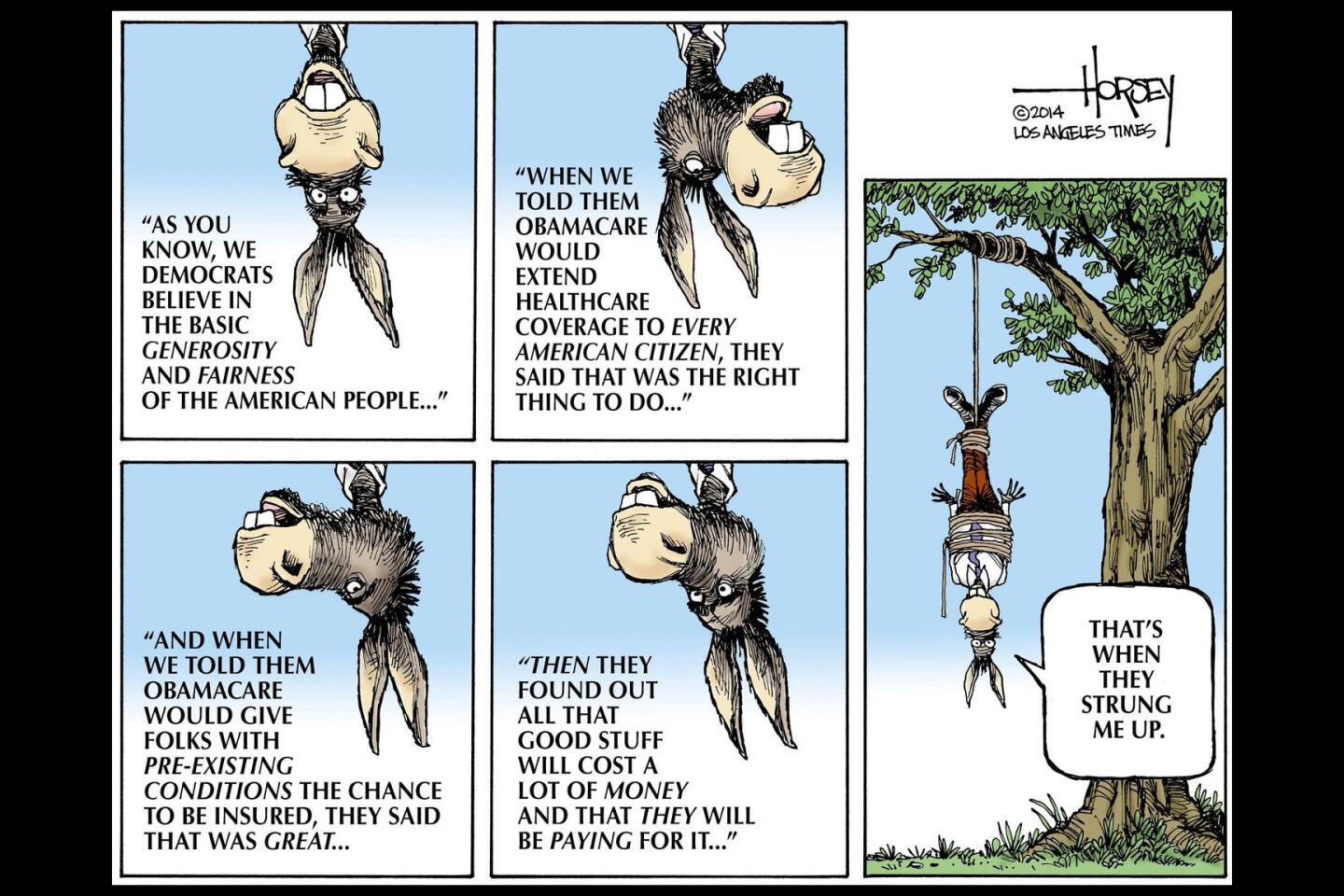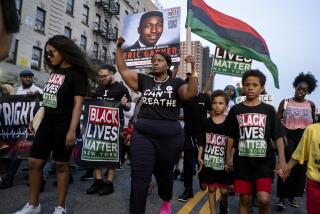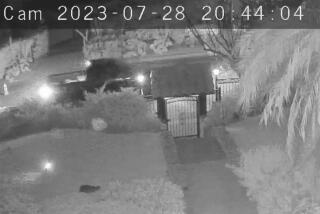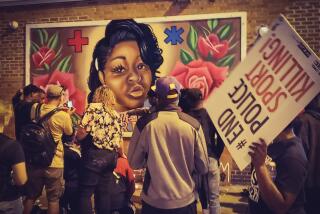Empathy is the path to healing between cops and black citizens
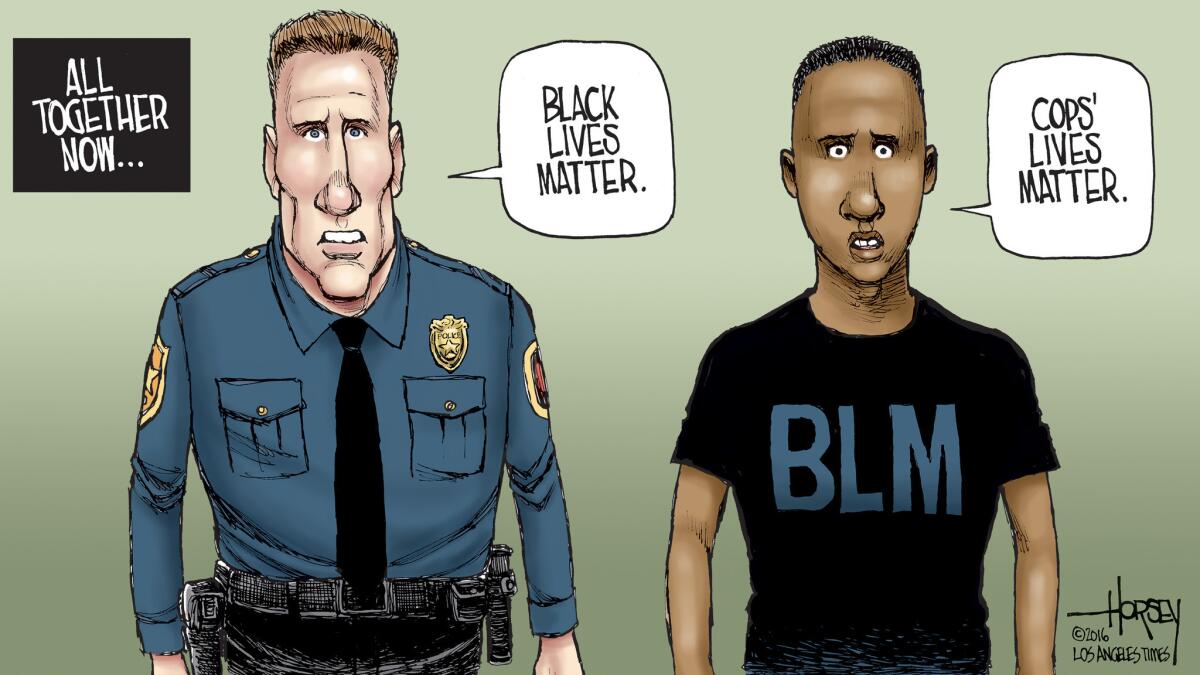
It is hard to know exactly where to start in untangling the violent web of race, guns, police, crime, poverty and rage that ensnares American society. So I’ll start with a shooting in a black community that got little notice outside of Los Angeles this weekend.
Saturday night, a 26-year-old woman was driving down a street in Compton. Her 15-month-old son was in the back seat. She had started following a car that looked like the one owned by her boyfriend, but when the car stopped and several men climbed out of the vehicle, she realized she was mistaken and tried to make a U-turn.That’s when the men started shooting.
The young woman ended up in the hospital with multiple gunshot wounds. Her little boy ended up on the TV news cradled in the arms of a policeman.
Jump back to Friday night in San Bernardino when a 9-year-old boy, his father and another man were shot dead as they walked out of a liquor store. Police said this shooting and the incident in Compton were likely gang-related. All the victims were African Americans.
This sort of news is tragically normal in most large American cities, barely noticed, even on quiet days.
In this case, these stories were completely overwhelmed by the horrific news that five Dallas police officers had been murdered by a sniper during a peaceful march organized to protest the deaths of two black men at the hands of police in Louisiana and Minnesota.
There’s a big picture here and also an intimate view. The big picture begins with our history – hundreds of years during which black people were first enslaved and then kept down by laws that restricted where they could live, what they could own, whether they could vote, where they could go to school and what jobs they could have. Those restrictions did not just exist in the South, some of them shaped even sunny, pleasant places such as Los Angeles. We live with the result: Millions of black Americans whose ancestors were not allowed to amass wealth or own homes in more prosperous parts of town continue to live with that legacy in communities wracked by poverty, poor schools and scant job opportunities.
The circumstances of those communities produce many people who live on the margins — homeless people, drug users, petty criminals and the more dangerous members of organized gangs whose victims are almost always the peaceful people in their community who are just trying to get by. That is why there are more police in disadvantaged communities; there are a lot of good people to protect and more problems to contain.
And containment is the thankless job we have given the cops. Decade after decade, we fail to do enough to transform our poor and largely non-white urban neighborhoods. Instead, we leave it to the police to keep the lid on. Much of the time, they do their best, but cops are not superheroes, they are human beings. They have the flaws we all have. A few are so flawed they should not be entrusted with a gun. Like all of us, they are susceptible to fear, to anger, to frustration. They have been trained to react with overwhelming force because they often face criminals with superior firepower. Their split-second decisions are driven by this training and sometimes they get it horribly wrong.
The result is our current social crisis, inflamed further by strident voices on the left and right who seem intent on forcing a choice between black people and police. It is a choice that we need not make; a divide that can be bridged.
Consider the intimate view: Shetamia Taylor took her four sons with her to the Black Lives Matter protest in Dallas last week. When the sniper started aiming at white cops, one of his shots also hit this black woman. With a bullet in her leg, she shoved her 15-year-old son down between a car and the curb and shielded him with her body. Within seconds, she was shielded herself by several white officers. When they had the chance, they moved Taylor to a bullet-riddled police cruiser and, driving on wheel rims, took her to a hospital.
After a few worrisome hours, Taylor learned that all her sons were safe. As related in a dramatic story by Times reporter Molly Hennessey-Fiske, Taylor was celebrating her boys’ safety at the hospital when she overheard the news about another police officer who did not survive.
“It hurt,” Taylor said. “Of course I’m thankful that my babies are OK. But somebody’s dad, somebody’s husband, isn’t.”
The more we hurt for each other, the more empathy we develop, the closer we will get to healing and to taking the actions that will finally transform this country into a place where police and the people they are called to serve know they are on the same side.
More to Read
A cure for the common opinion
Get thought-provoking perspectives with our weekly newsletter.
You may occasionally receive promotional content from the Los Angeles Times.
